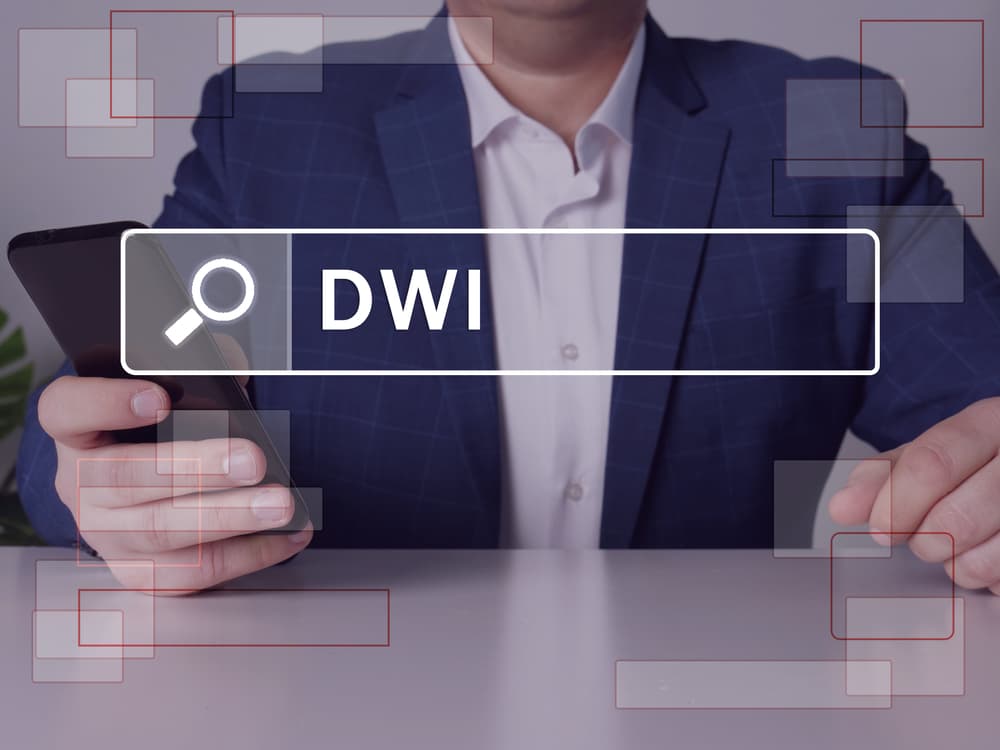
DWAI/DWI in New York with a New Jersey License? What You Need to Know
In New York state, you may face a DWI or DWAI charge.
DWI means that a driver is drunk, with a BAC of at least 0.08 percent. DWAI (driving while ability impaired) means a driver’s BAC ranges between 0.05 percent and 0.07 percent, or other evidence shows the driver is impaired.
If you face a DWI or DWAI in New York and have a New Jersey driver’s license, contact a DWI attorney in New York—preferably an attorney licensed to practice law in both New York and New Jersey. Doing so allows you to conveniently address your case without coordinating your representation for cross-border legal matters.
A dual-licensed DWI lawyer has a comprehensive knowledge of both New York and New Jersey state laws, so no part of your case is overlooked. If you contact a DWI attorney licensed to practice in New York, they should have experience working with defendants arrested for DWAI/DWI outside their state of residence.
Schedule a Free Initial Consultation Today!
How an Out of State DWI Charges Can Affect Your New Jersey License
Both New Jersey and New York participate in the Interstate Driver’s License Compact, which allows participating states to report an individual’s driving conviction to another participating state.
If you’re arrested for DWI/DWAI in New York, the New Jersey Motor Vehicle Commission will receive notification from New York about your arrest and conviction.
Upon receiving the notice, the MVC in New Jersey will send you a notice of hearing to suspend your license. So, you need to contact a DWI lawyer familiar with both states’ traffic and DWI laws to act on your behalf.
A conviction of DWAI or DWI in New York can lead to a year-long bar on your driving rights in New York state and the suspension of your license for a year or more in New Jersey.
How Does New Jersey Determine Driver License Suspension for New York DWI/DWAI Convictions?
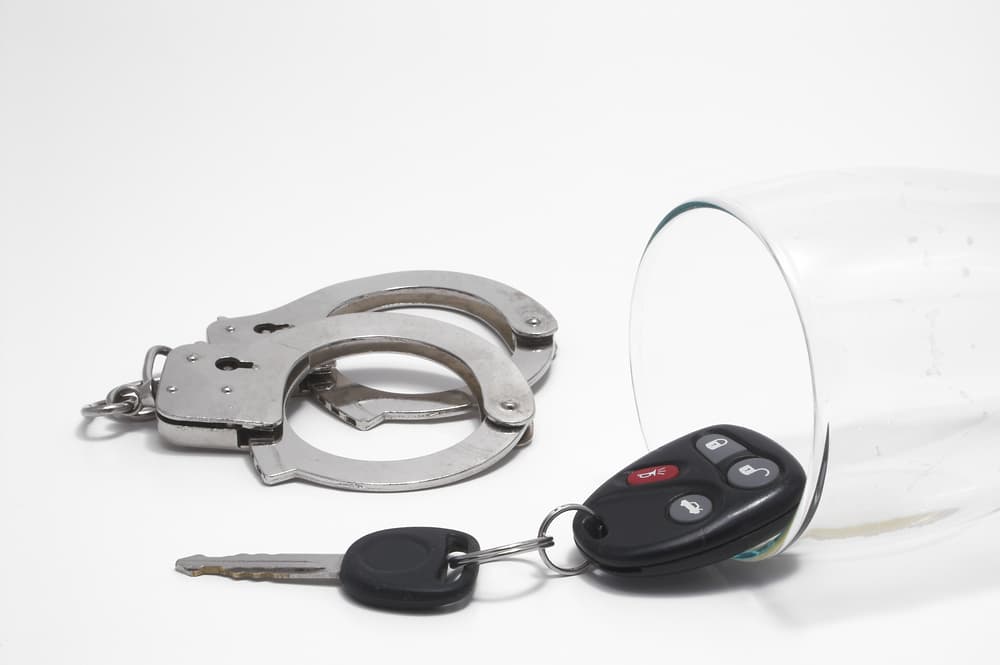
New Jersey may view your New York DWAI/DWI conviction the same way as if you were charged with DWI in New Jersey.
For example, in the Division of Motor Vehicle v. Lawrence, 194 N.J.Super. 1 (App. Div. 1983), the court held that the offense of driving while impaired under New York’s law significantly resembles the offense of drunk driving under N.J.S.A. 39:4-50. So, if a New York DWAI/DWI offense breaks a law on the books in New Jersey, you may face consequences in both states.
What Is the Court Process if Police Arrest You for DWAI/DWI in New York and You Have a NJ License?
In New York, a DWAI/DWI case is both a criminal and administrative case. Because you have a New Jersey driver’s license, though, the DMV in New York doesn’t have the authority to suspend your license.
Instead, they may revoke your driving privileges in New York State. As a result, you can’t drive in New York even with a currently valid New Jersey license.
Unfortunately, your New Jersey license may not remain valid for long. After New York notifies New Jersey about your conviction, officials in New Jersey may follow up by suspending or revoking your license.
Get help from a DWI attorney. Ensure your lawyer has experience dealing with the legal process in out-of-state DWI arrests when New Jersey drivers are arrested in New York for DWAI/DWI.
Possible Penalties
A court may hand down to a first-time offender a sentence requiring:
- Suspension of license for three months to one year
- 12- to 48-hour Intoxicated Driver Program
Drivers with BACs of at least 0.15 percent may be required to use an ignition interlock device (IID).
A second DUI offense within ten years can lead to a loss of your license for as long as two years and 12 to 48 hours in an Intoxicated Driver program. You may need to use an IID for as long as three years following restoration of your license.
A third offense within ten years of a second offense may lead to a loss of your license for ten years, 12 to 48 hours in an Intoxicated Driver program, and the use of an IID for up to three years after the restoration of your driver’s license.
Your Rights When You’re Stopped: Taking Field Sobriety and Breathalyzer Tests
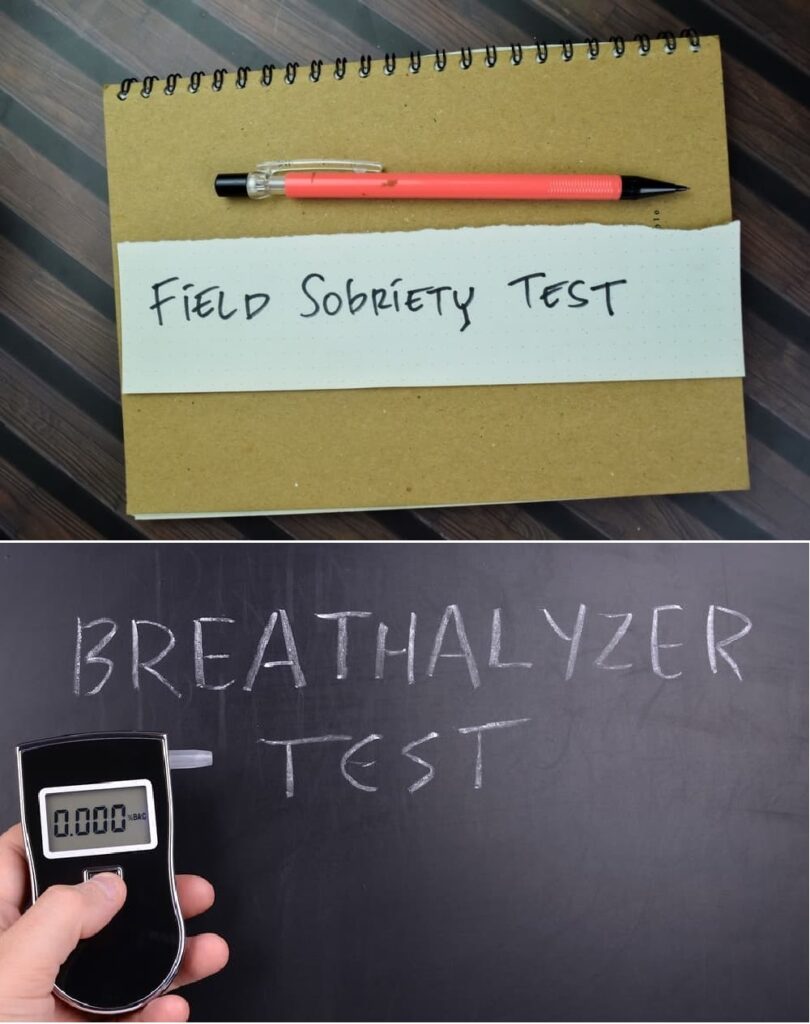
When you are stopped in New York for DWI/DWAI as a non-resident), you have certain rights concerning taking a field sobriety test or Breathalyzer.
Field Sobriety Tests
Field sobriety tests like walk-and-turn or one-leg stand are voluntary in New York, and you don’t have to take them by law. Nevertheless, your refusal may invite further suspicion and an arrest, so comply with the test.
Breathalyzer/Chemical Tests
Driving on New York roads implies consent under the Implied Consent Law. Therefore, anyone driving anywhere within NY State automatically agrees to undergo a chemical test (blood, breath, or urine) when caught driving while intoxicated (DWI).
If you refuse a breathalyzer or chemical test, you can get your license automatically suspended in your home state.
Retaining the Services of a DWI Lawyer: The Benefits
If you’re charged with DUI in New York and have a New Jersey driver’s license, you need to retain a DWI lawyer in New York or the services of a lawyer who practices in both New York and New Jersey.
A lawyer with the applicable experience offers the following benefits.
- They are familiar with the local laws and processes, including DWI/DWAI legislation, penalties, and court procedures.
- They can work to avoid a license suspension in your home state.
- They can manage both administrative license hearings and criminal court procedures.
- Depending on your case’s circumstances, they can negotiate for reduced penalties and charges.
- They can ensure the proper steps were followed during your arrest.
- If you’re a non-US citizen, a DWI attorney can advise you on the possible consequences, including potential deportation.
Don’t walk into an uncertain future. Talk to a criminal defense lawyer about your DWAI/DWI case in New York or your DWI in New Jersey.
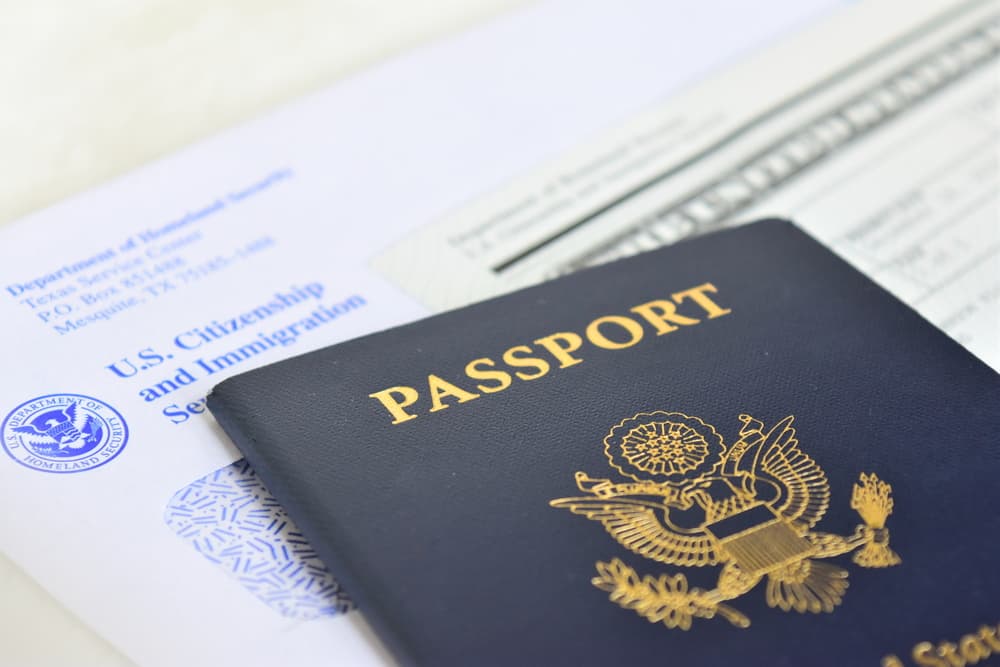
Can a Passport Application Be Denied for Unpaid Traffic Tickets?
Many people are concerned that traffic tickets might cause a hiccup when applying for a passport, given the bureaucratic red tape involved. A traffic defense lawyer can provide guidance on this matter.
If you need to obtain a passport to travel outside the U.S., you may wonder what can prevent you from getting this ticket to the world of travel. Can unpaid traffic tickets hinder you from realizing your travel goals or dreams?
Schedule a Free Initial Consultation Today!
Who Needs a Passport?
All citizens of the U.S. must get a passport if they wish to travel outside the country by plane. This requirement is also extended to infants. Any applicants 16 years old or under who sign up for a passport must co-sign their passport application with their parents.
Processing Times
It takes about four to six weeks to process a passport, so you should allow extra time if you plan to travel on a specific date. To receive the document sooner, you need to expedite delivery or submit an emergency application. Expediting the process can reduce the time to about two to three weeks.
The Passport Application Form
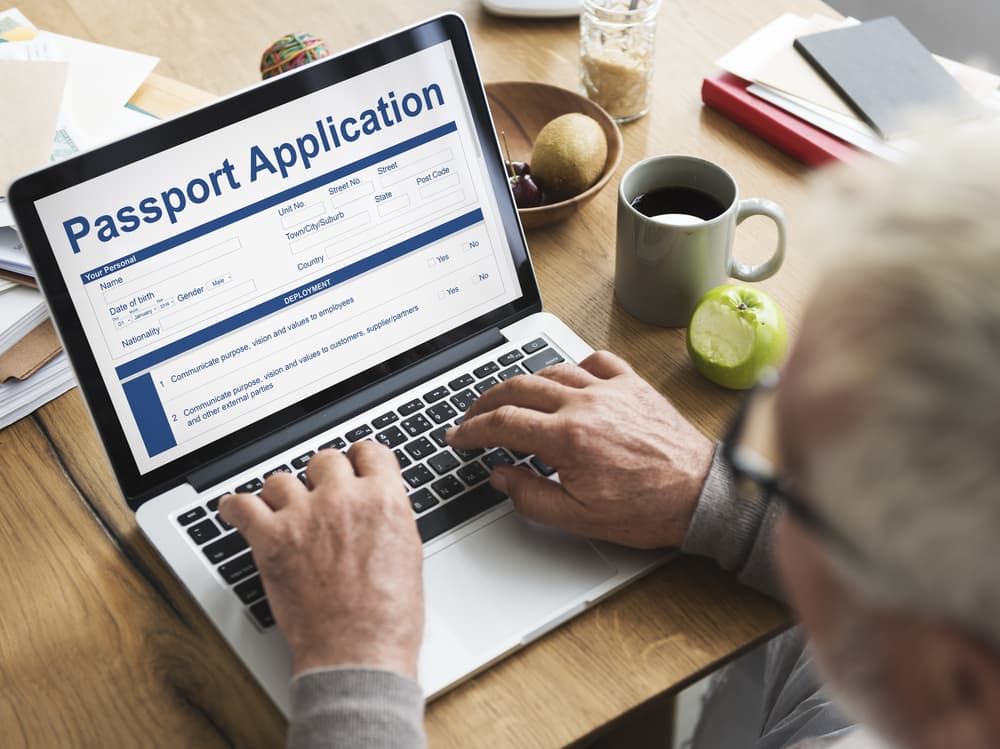
Your first step in the application process is filling out the U.S. State Department form DS-11. While you can download the form online, you still have to show up in person with the application at a passport facility or passport agency.
Supporting Documents
Supporting documents include:
- Proof of U.S. citizenship, such as a birth certificate or certificate of citizenship.
- A photo government ID (driver’s license, state-issued ID, or previously used passport if you’re applying for a new one), plus a photocopy of the front and back of the ID.
- A current passport photo in the required size
- Passport fees
To obtain a passport, you must complete an official application, submit the right-sized photo, include documents proving your identity and citizenship, and pay the fees.
Passport Review
After the application is submitted, the U.S. State Department will perform a background check – checking for any alerts that may be grounds for a denial.
Traffic Tickets Won’t Keep You From Traveling Outside the Country
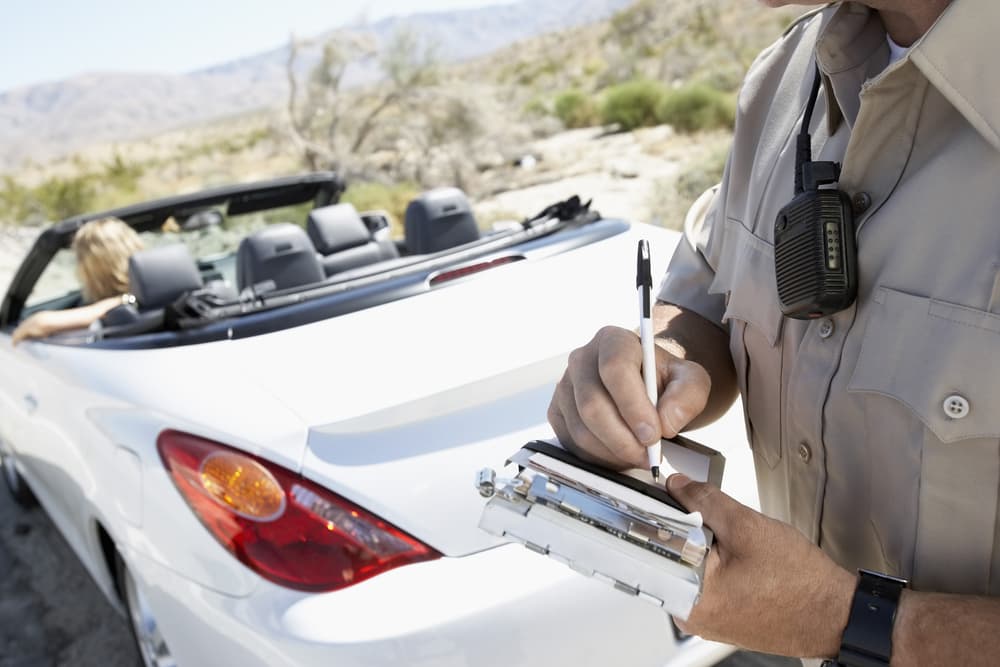
When it comes to traffic tickets, an outstanding ticket for a red-light infraction, texting, or speeding will not prevent you from getting a U.S. passport. However, it is best to address these matters before you leave the U.S. and go on your travel adventure.
What Might Happen When Your Return
For instance, if the state issues an arrest warrant for your unpaid tickets, you may face arrest when re-entering the U.S. Unpaid tickets can lead to a more intense inspection, even if they don’t trigger a warrant.
What Leads to Passport Denials?
So, what can prevent you from getting a passport? Applications do come with some caveats – caveats that can invalidate your application.
For instance, you can get denied if you:
- Owe child support payments
- Have a federal drug conviction
- Have an arrest warrant
Why You Should Pay Your Traffic Tickets and Fines – Whether or Not You’re Applying for a Passport
Also, failure to pay or respond to a traffic ticket may also have serious consequences.
For example, failure to pay fines for traffic tickets can lead to additional fines, a driver’s license suspension, and even jail time.
So, if you’re pulled over with outstanding tickets, you can possibly be charged for driving with a suspended license.
Additional Charges that Can Lead to a Passport Denial
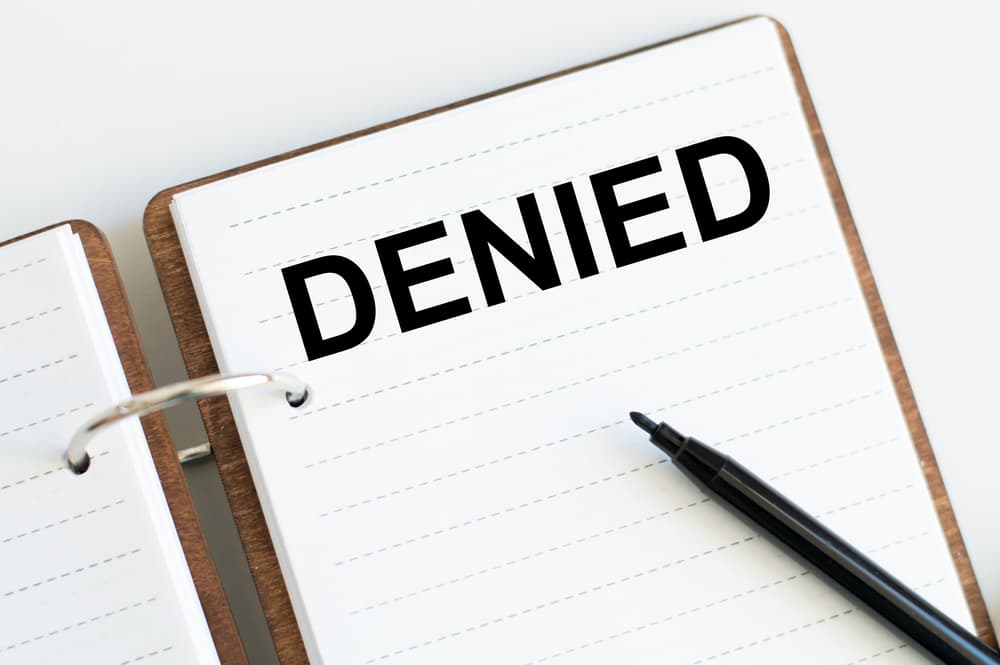
Merely having unpaid tickets typically won’t affect your passport application, though, unless you also:
- Have an outstanding federal warrant for a felony charge, including a warrant that is issued under the Federal Fugitive Felon Act (18 USC 1073)
- You are also subject to a criminal court order or a condition of your probation or parole that forbids you from leaving the U.S.
You may have outstanding traffic fines that won’t affect your passport approval. However, your passport can be denied if you have an outstanding warrant for a local, state, or federal felony offense.
Because getting a traffic ticket is not considered a felony offense, it won’t normally cause problems when getting accepted for a passport. However, other driving-related offenses, such as a DWI or driving when your license is suspended, can lead to a denial.
You need to speak to a traffic law attorney to get past these hurdles in these cases.
How to Handle Unpaid Fines for Traffic Tickets
Having unpaid traffic tickets can affect your credit score and make it difficult to get around town. After all, you won’t get very far with a suspended license. Again, the best course to take is to contact a traffic law lawyer.
Remember that as long as you pay your tickets in full and on time, you won’t experience negative consequences. If you’re having trouble paying the fines, a traffic lawyer can reduce the financial burden.
Review Your Payment Options
If you can’t pay traffic court fines or if you appear in court because you cannot pay the fines, you may receive offers to help you manage the debt. For example, the court may lower the penalty, suspend the penalty, or revise the installment plan.
So, that innocuous slip of paper, fluttering in the wind beneath your windshield, should not give you problems – as long as you don’t ignore the fine, keep your court dates, and stay out of trouble.
The federal powers only intervene when you accrue substantial debt, or worse, when an arrest warrant is issued for failing to comply with a summons.
To set the wheels of freedom rolling:
- Address your outstanding fines and proactively engage with your local jurisdiction where the tickets were issued
- Settle the debts or ask about a payment plan
- Contest the charges if you believe they were incorrectly assessed
Obtain documented proof that you paid your fines, providing evidence of a resolution of past-due payments and current fines. Be transparent when you communicate with the court.
Make sure you have a traffic defense attorney to ensure your payments are made and that you retain or regain your driving privileges.
Consult a Traffic Lawyer Today
With the slate wiped clean, you can submit a passport application without worry. If you have traffic fines that are difficult to pay, contact a New York criminal defense attorney immediately.
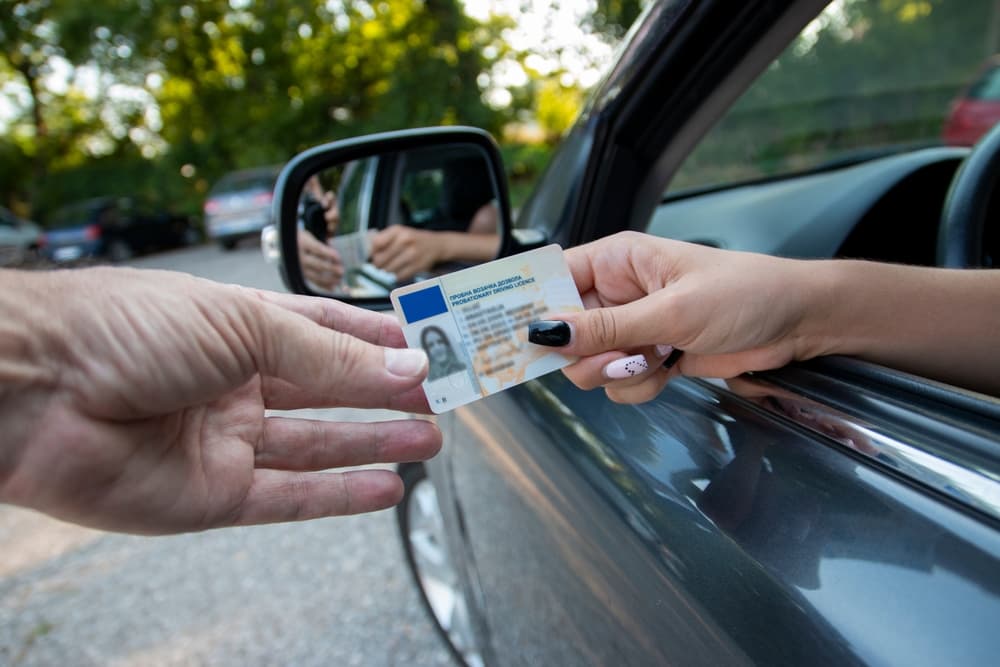
Driving with a Suspended Driver’s License in New York – VTL 511
Driving with a suspended driver’s license in New York, as defined under Vehicle and Traffic Law (VTL) 511, is a serious offense with significant consequences. Understanding the laws, penalties, potential defenses, and the importance of legal representation is crucial if you find yourself facing such charges.
If you’re accused, you should understand the penalties associated with this offense and how a skilled New York traffic ticket lawyer can help you achieve the best possible result in your case. Consult a criminal defense attorney near you today.
Schedule a Free Initial Consultation Today!
Understanding VTL 511
New York law VTL 511 prohibits driving with a suspended or revoked driver’s license. This offense encompasses several scenarios, including driving with a suspended license due to unpaid traffic tickets, failure to appear in court, or certain traffic violations. VTL 511 also applies if your license was suspended for non-driving-related reasons, such as failure to pay child support or maintain auto insurance.
Penalties for Driving with a Suspended License
The penalties for driving with a suspended driver’s license in New York are severe and can have lasting consequences. If convicted under VTL 511, you may face fines, additional license suspensions, and potential imprisonment. The exact penalties vary depending on factors such as the reason for the license suspension and any prior convictions for similar offenses. The following is a brief look at some penalties you may face.
- Fines: Upon conviction, someone charged with driving with a suspended license may face fines ranging from $200 to $500 for a first offense. Subsequent convictions could result in higher fines, up to $1,000.
- Additional license suspension: Driving with a suspended driver’s license in New York can lead to further suspension of your driving privileges. The length of the additional suspension period varies depending on factors such as the reason for the initial suspension and any prior convictions.
- Imprisonment: In addition to fines and license suspension, a conviction could lead to imprisonment. A first offense is typically punishable by imprisonment for up to 30 days, while subsequent offenses may result in longer jail sentences, up to 180 days.
- Criminal record: A conviction for driving with a suspended license can result in a permanent criminal record. A record can impact various aspects of your life, including employment opportunities, housing, and professional licenses.
The Importance of NY Defense Representation
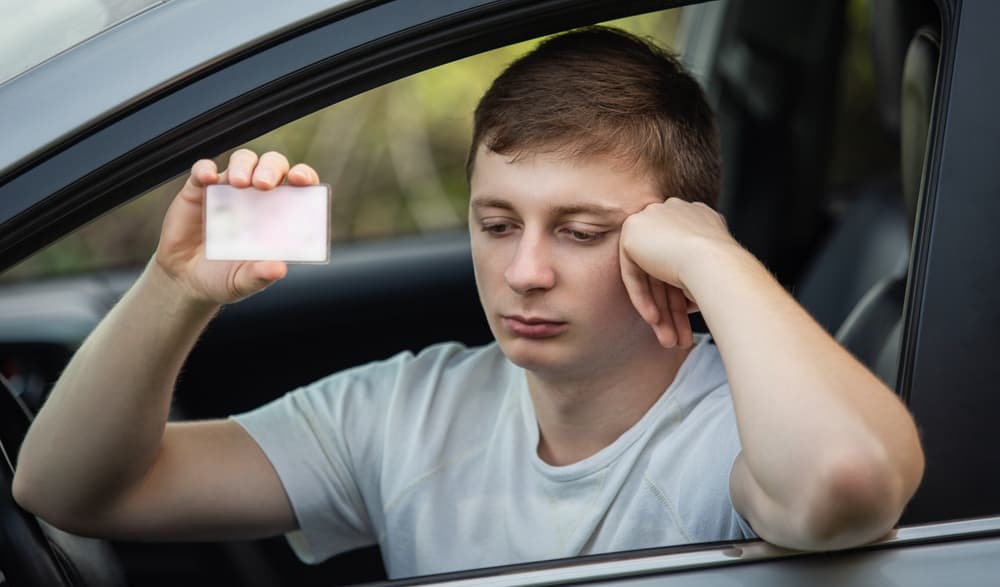
Getting legal representation immediately is critical if you’re facing charges of driving with a suspended driver’s license in New York. An experienced attorney can provide invaluable assistance throughout the legal process. The following are just some of the reasons you need a lawyer:
- Understanding of the law: A knowledgeable attorney understands the intricacies of New York’s traffic laws and the specific statutes related to driving with a suspended license. They can explain the charges against you and help you navigate the legal process.
- Negotiation skills: A skilled lawyer can negotiate with prosecutors on your behalf to seek reduced charges or dismissal of the case. For example, negotiations may involve plea bargaining for lesser offenses or advocating for alternative penalties, such as probation or community service. An attorney could also help you obtain a conditional or restricted license granting limited driving privileges, such as driving to and from work or school.
- Court representation: If your case goes to court, an attorney will represent you in legal proceedings, advocating for your interests and presenting compelling arguments. They have the experience and expertise to navigate courtroom procedures effectively and work toward a favorable outcome.
- Legal guidance: Facing criminal charges can be overwhelming, but an attorney will provide you with guidance and support every step of the way. They will answer your questions and ensure you understand your rights and options throughout the legal process. When choosing an attorney, look for one who will be available when needed. Check their websites and ask questions about their accessibility during your consultation.
Potential Defenses Against VTL 511 Charges
When facing charges of driving with a suspended driver’s license in New York, there are several potential defenses that your attorney may use to challenge the allegations. An attorney will assess the circumstances of your case and develop a tailored defense strategy to challenge the charges against you. This strategy may involve questioning the legality of the traffic stop, challenging the evidence, or seeking to have the charges dismissed.
Defenses may vary depending on the specific circumstances of your case, but common strategies include the following:
Lack of Knowledge
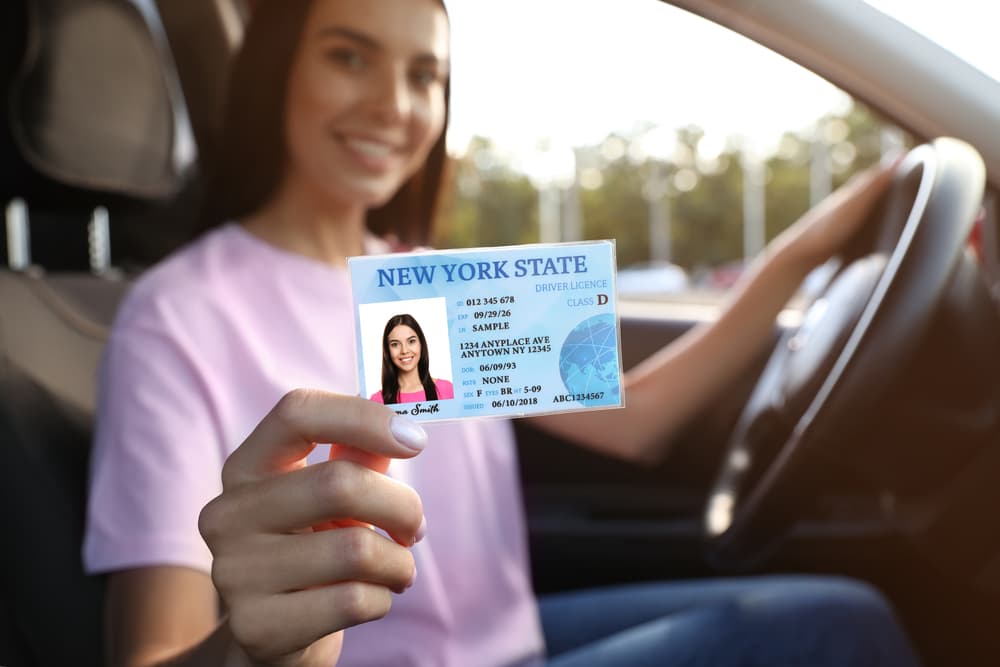
You may argue that you were unaware of the suspension of your license due to administrative errors, failure to receive notification of the suspension, or confusion regarding the status of your driving privileges. If there were administrative errors or authorities failed to notify you of the suspension appropriately, your attorney can claim the suspension isn’t valid.
Emergency Circumstances
Suppose you drove with a suspended license due to a genuine emergency, such as a medical crisis or urgent family matter. In that case, you may argue that your actions were necessary.
Mistaken Identity
In some cases, law enforcement may wrongly charge people with driving with a suspended driver’s license in New York due to mistaken identity. Your attorney will work to provide evidence to show you weren’t operating the vehicle at the time of the alleged offense.
Legal Justification
Certain circumstances may justify driving with a suspended license, such as driving to and from work, school, or court-ordered programs. Your attorney could argue that your actions were legally justified per state statutes.
Get in Touch With a New York Criminal Defense Attorney to Learn More

Driving with a suspended license in New York, as defined under VTL 511, is a serious offense with significant penalties. If you’re facing charges related to driving with a suspended license, seeking legal representation is crucial. An experienced attorney can provide invaluable assistance, protecting your rights, exploring potential defenses, and working to achieve the best possible outcome for your case.
With the guidance of a skilled New York criminal defense lawyer, you can navigate the legal process effectively and potentially reduce the consequences of a conviction. The sooner you get in touch with the right defense attorney, the faster they can get to work for you.
Schedule a Free Initial Consultation Today!

What Are the Penalties for Shoplifting in NY?
It’s natural to want to know the penalties for shoplifting in NY. However, it’s just as essential to know the importance of hiring an experienced lawyer as soon as possible. The following is information on the consequences you may face and how a New York criminal defense attorney can help.
Schedule a Free Initial Consultation Today!
How New York Law Defines Shoplifting
Under New York law, shoplifting covers various actions, including concealing merchandise, altering or removing price tags, switching labels, and attempting to leave a store without paying for items. The intent to deprive the merchant of the value of the merchandise must occur for the act to constitute shoplifting.
The severity of the offense and the corresponding penalties depend on the value of the merchandise stolen. In New York, shoplifting is typically classified as petit larceny if the value of the stolen property is less than $1,000. Petit larceny is a misdemeanor offense punishable by fines, community service, and potential imprisonment for up to one year.
However, if the value of the stolen property exceeds $1,000, you may face a charge of grand larceny, which is a felony. Grand larceny carries more severe penalties, including substantial fines and potential imprisonment for more than one year. For example, the law considers first-degree grand larceny a Class B felony, punishable by up to 25 years in prison. Class B grand larceny involves stealing property valued at $1 million or more.
In addition to criminal penalties, people convicted of shoplifting in New York may also face civil consequences. Merchants have the right to pursue civil remedies, such as demanding restitution for the value of the stolen merchandise and seeking damages for any losses incurred due to the theft.
More Information on The Differences Between Petit and Grand Larceny

In New York, larceny is the unlawful taking of property from another person with the intent to deprive them of possession permanently. The severity of a larceny charge depends on the value of the stolen property and the circumstances surrounding the offense. The main differences between petit larceny and grand larceny lie in the value of the stolen property and the potential penalties upon conviction.
Petit larceny, also known as petty theft, occurs when the value of the stolen property is below a certain threshold. Again, the law sets the threshold for petit larceny at $1,000. If the value of the stolen property is less than $1,000, the offense is classified as petit larceny.
New York law distinguishes between various degrees of grand larceny based on the value of the stolen property and how the theft occurred. The penalties for grand larceny increase with the severity of the offense, with higher degrees of grand larceny carrying harsher consequences upon conviction. Here’s a brief look at the different degrees and their punishments.
- First-degree grand larceny (theft of property valued at $1 million or more): Class B felony/ a maximum of 25 years in jail
- Second-degree grand larceny (theft of property valued at $50,000 or more): Class C felony/ a maximum of 15 years in jail.
- Third-degree grand larceny (theft of property valued at $3,000 or more): Class D felony/ a maximum of seven years in jail.
- Fourth-degree grand larceny (theft of property valued at $1,000 or more): Class E felony/ a maximum of four years in jail.
Why Hiring a NY Criminal Defense Lawyer ASAP is Critical
Facing a shoplifting charge in New York can have serious consequences, making hiring a New York criminal defense attorney immediately imperative. Here’s why:
- Legal experience: Shoplifting charges involve complex legal issues and procedures. An experienced defense attorney understands the nuances of New York’s criminal laws and can navigate the legal process effectively.
- Protection of rights: You have legal rights law enforcement officials must uphold upon arrest. A defense lawyer will always protect your rights, including during police questioning and court appearances.
- Reduction of penalties: Shoplifting convictions can result in significant penalties, including fines, community service, and even imprisonment. An attorney can work to reduce these penalties by negotiating with the prosecution to reduce your charges. They may also negotiate different sentencing options.
Defense Strategies Your Attorney May Use
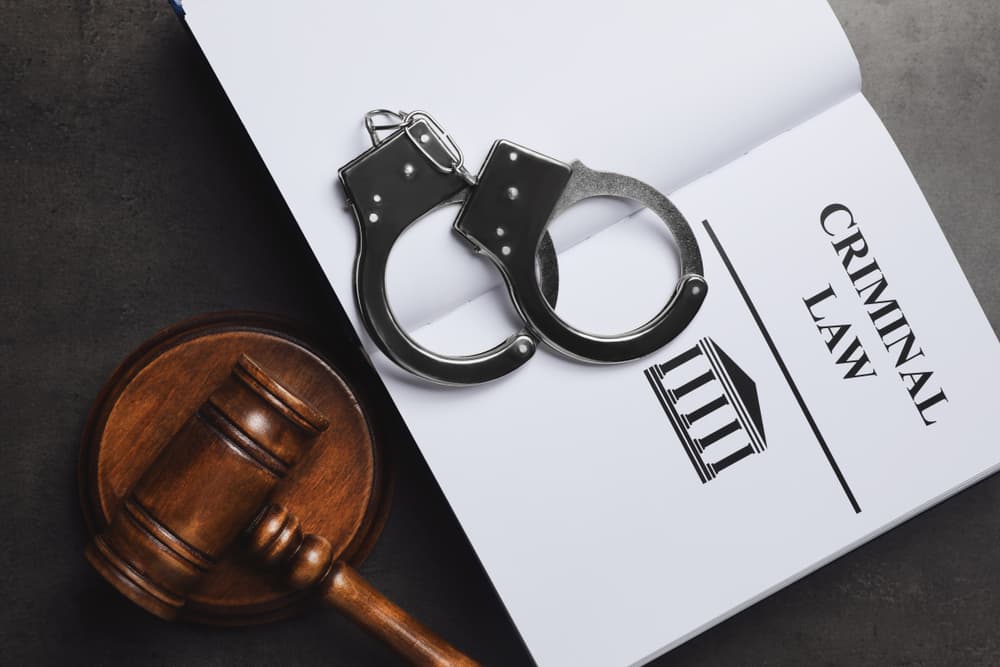
Your attorney will thoroughly examine your case to determine the best defense for your specific situation. These are a few potential defense strategies they may use:
Lack of Intent
Shoplifting requires proof of intent to permanently deprive the merchant of the stolen property. If you accidentally walked out of the store with unpaid merchandise or forgot to pay for an item, you may argue that there was no intent to steal.
Mistaken Identity
If you can provide evidence that you weren’t present at the store at the time of the alleged theft or that someone else committed the offense, this may serve as a defense.
A Coerced Confession
If law enforcement obtained a confession through coercion, duress, or other improper means, it may be possible to challenge the admissibility of the confession in court.
Insufficient Evidence
The prosecution in your case has the burden of proving your guilt – and doing so beyond a reasonable doubt. If there is insufficient evidence to support the shoplifting charge, your attorney may argue for dismissal of the case.
Illegal Search and Seizure
If law enforcement officers conducted an illegal search or seizure in violation of your Fourth Amendment rights, the court can suppress any evidence obtained.
Civil Recovery
Some retailers pursue civil recovery for shoplifting incidents rather than criminal charges. If you agree to pay restitution for the value of the stolen merchandise, the retailer may drop criminal charges.
Speak With a New York Criminal Defense Attorney to Protect Your Rights

As you can see, the penalties for shoplifting in NY can be severe. Mounting a successful defense against a shoplifting charge requires a thorough analysis of the facts and circumstances of your case. Consulting with a skilled attorney who can assess potential defenses and fight for your rights is crucial to achieving the best possible outcome for your case.
Please don’t hesitate to contact a lawyer. If you’re facing a felony charge, a criminal defense attorney can work to avoid a life-altering jail sentence.
Schedule a Free Initial Consultation Today!
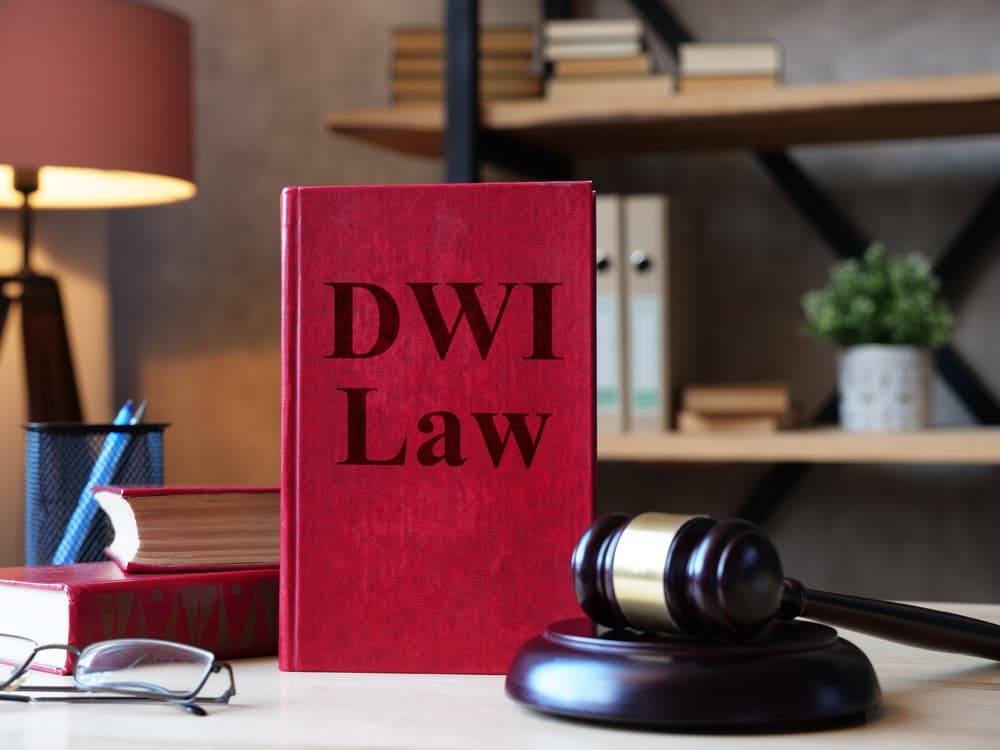
First-Time DWI or DUI in NY – A Complete Guide
Facing a first-time DWI (Driving While Intoxicated) or DUI (Driving Under the Influence) charge in New York can be a scary experience. While these two terms are often used interchangeably, NY uses the DWI to refer to the offense of impaired driving.
You must understand not only the potential penalties but also the importance of legal representation. Here’s a look at the potential consequences of a conviction and why you need a New York DWI defense lawyer. You’ll also learn how a skilled New York DUI defense attorney can negotiate with the prosecution or work to have the charge dropped and potential defense strategies.
Schedule a Free Initial Consultation Today!
The Impact of BAC on Your Case
As does every other state, New York takes any form of impaired driving very seriously. It’s understandable since an average of 30 percent of fatal crashes in New York involve alcohol.
The severity of the penalties you face depends on your BAC (blood alcohol concentration) level when police arrest you. In New York, the legal limit for BAC is 0.08 percent for people 21 and over operating a non-commercial vehicle.
However, even a BAC below this limit can result in a charge if law enforcement determines that alcohol impaired your ability to drive. The following are the offenses associated with specific BAC levels.
If your BAC was less than .08 percent, authorities can charge you with driving while alcohol impaired (DWAI). The state views this as a traffic infraction with relatively minor penalties.
If your BAC is between 0.08 percent and 0.17 percent, you may be charged with standard driving while intoxicated (DWI). This charge can lead to penalties such as fines, license suspension, and potential jail time.
If your BAC is 0.18 percent or higher, you may face aggravated DWI charges, which carry more severe penalties. These penalties may include higher fines, longer license suspension periods, and mandatory participation in an alcohol treatment program.
The following is a look at the penalties you can face for the first-time DWI in NY.
First Offense DWAI Penalties
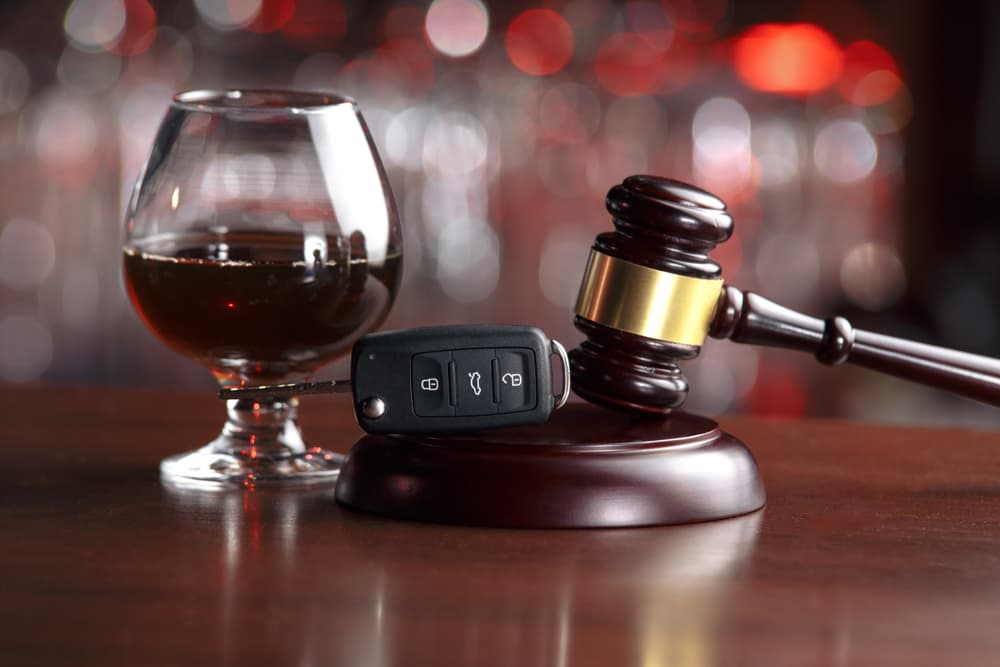
A DWAI charge is the least severe you can face. As long as the court finds your impairment occurred due to alcohol and not drugs, you’ll likely face no more than a fine of between $300 and $500. New York state law allows for a sentence of no more than 15 days in jail, but first-time offenders rarely face jail time.
Also, while you can lose your license for at least 90 days, you’ll likely qualify for a conditional license so you can drive to school or work. In addition, you’ll probably face court fees of up to $250. Also, your car insurance rates will rise significantly.
First Offense DWI Penalties
As the severity of your charge increases, so do the penalties. If your BAC when arrested was between 0.08 percent and 0.17 percent, you’ll face DWI penalties. Unlike a DWAI, a DWI is a criminal misdemeanor. The potential penalties are as follows:
- A minimum $500 fine (maximum $1,000).
- A jail sentence of as long as a year.
- A six-month license suspension (you might qualify for a conditional license).
- Installation of an IID (ignition interlock device). An IID makes it impossible to start your vehicle unless you have no alcohol on your breath.
- Mandatory attendance to a drunk driving victim impact panel.
- At least $400 in court fees.
- Much higher insurance premiums.
First Offense Aggravated DWI Penalties
If your BAC was 0.18 percent or higher when arrested, or a child younger than 15 was in your vehicle, you’ll probably face an aggravated DWI charge. The penalties are stiff, even if you’re a first-time offender. They include:
- A fine of as much as $2,500.
- Up to a year in jail.
- A license suspension of at least a year.
- IID installation.
- Victim panel attendance.
- Court fees of about $400.
- Three years’ probation.
New York’s Implied Consent Law
Implied consent is a legal concept that applies to first-time DWIs in NY, as well as in many other states. Under implied consent laws, by operating a motor vehicle on New York roads, you implicitly consent to submit to chemical tests to determine your BAC if an officer arrests you for driving under the influence of alcohol or drugs.
If you choose not to take a chemical test after your arrest, that can lead to severe consequences. The court can fine you $500 and suspend your license, regardless of whether or not you’re convicted. In addition, the court can use refusing a chemical test against you, potentially leading to enhanced penalties.
Why You Need a Defense Attorney for a DWAI or DWI in New York
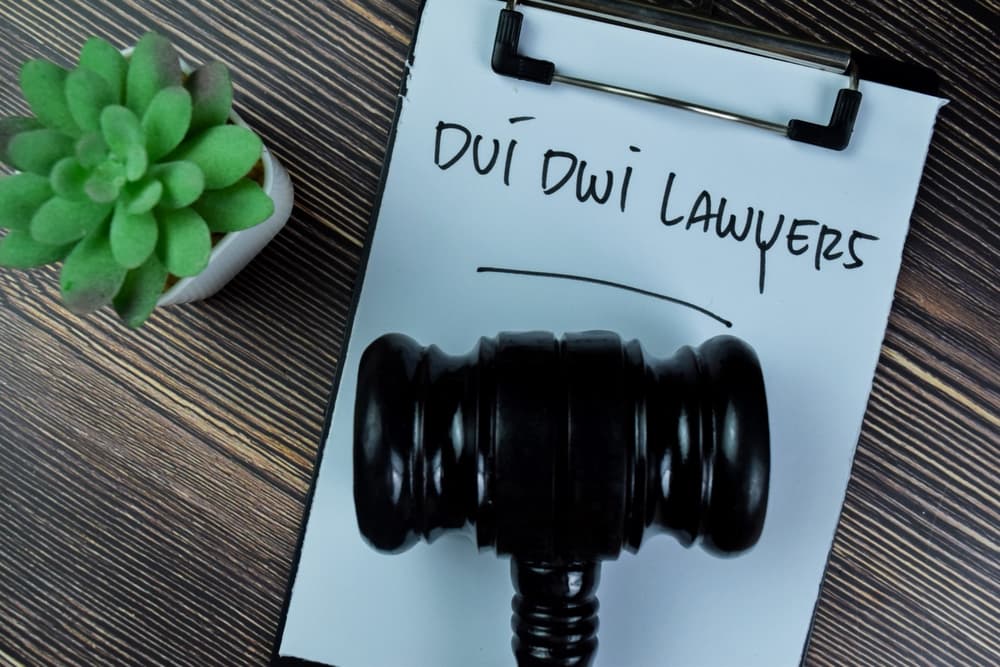
The purpose of the information provided above isn’t to scare you or to drive you to panic. It’s to show you that you’re in a high-stakes situation. Your best chance to achieve the best possible outcome is to hire an experienced lawyer as soon as possible.
A DWI defense attorney can assess the evidence against you, identify potential defenses, and develop a tailored strategy to challenge the prosecution’s case. They can negotiate with prosecutors to seek reduced charges or alternative sentencing options, such as participation in a treatment program.
Possible Defense Strategies
Your attorney may employ several potential defenses to challenge the charges and protect your rights. These strategies include:
Challenging the traffic stop’s legality. Law enforcement officers must have reasonable suspicion or probable cause to stop your vehicle. If they lacked justification for pulling you over, the court may throw out any evidence obtained following the stop.
Questioning the accuracy or reliability of the chemical tests used to determine your BAC level. Factors such as improper administration of the tests, calibration issues with testing equipment, or medical conditions affecting the results can undermine the prosecution’s case.
Your attorney may also challenge the officer’s observations of your behavior. Police commonly use field sobriety tests, which are subjective and prone to error. Weather conditions, uneven terrain, or physical limitations may impact your performance on these tests, leading to false indications of impairment.
Failure to administer Miranda warnings (read your rights) or delays in providing access to legal help can result in suppression of evidence against you.
Your attorney can present alternative explanations for your behavior or physical condition as defenses. For example, fatigue, illness, or reactions to medication can mimic signs of impairment, leading to a mistaken arrest.
An Experienced DWI Defense Lawyer is Ready to Help

A skilled Criminal defense attorney can be a powerful ally if you’re facing a first-time DWI in NY. Please get in touch with one immediately to protect your rights.
Schedule a Free Initial Consultation Today!
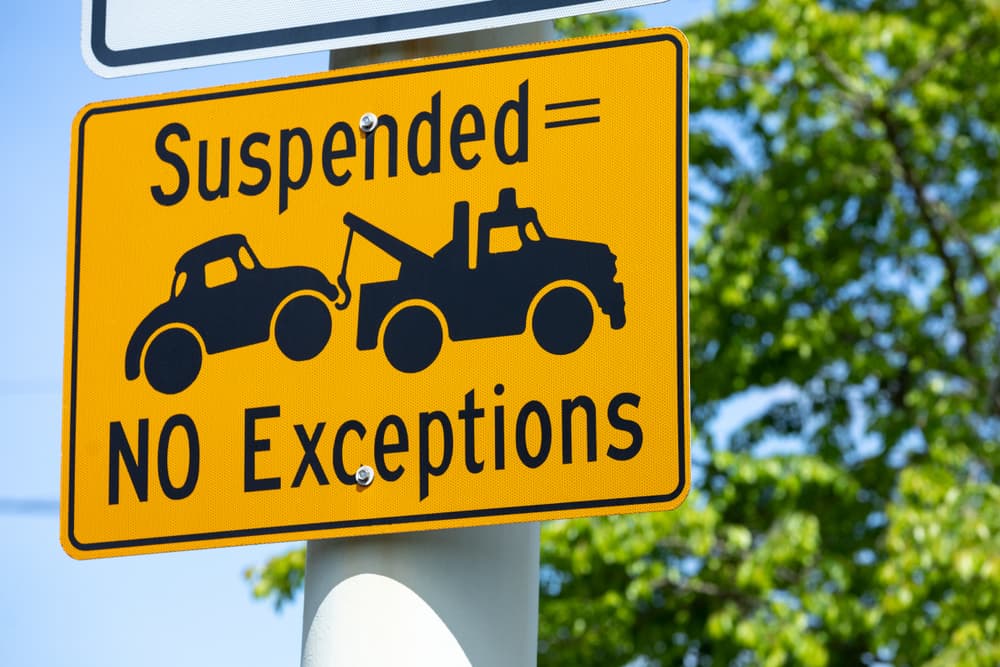
Driving While Suspended in New Jersey
Driving while suspended in New Jersey can lead to severe penalties. If you find yourself in such a situation, you must understand the potential ramifications.
A New Jersey criminal defense attorney can explain the penalties you may face and how they can assist if authorities have charged you with this offense. Seek a legal consultation with a New Jersey defense lawyer now.
Schedule a Free Initial Consultation Today!
Penalties for Driving While Suspended in New Jersey
Surprisingly, many people in our state drive with a suspended license. Researchers found that 5.5 percent of drivers – more than 420,000 of them – were driving while suspended in New Jersey in a recent year.
You might also be surprised to know that nearly all of those suspensions – more than 90 percent – were due to issues that had nothing to do with operating a motor vehicle.
Law enforcement suspended many licenses because people failed to pay a fine or fee. Others failed to pay child support or appear in court. Many others failed to submit to state-mandated drug or alcohol tests. More than 500 offenses can lead to a license suspension in New Jersey.
You risk facing severe consequences when you drive while suspended in New Jersey. If police accuse you of driving with a suspended license, you can face a $500 fine.
In addition, you can face a jail sentence of as long as 180 days (six months). These penalties can significantly impact your life, not only financially but also in terms of your freedom.
Driving while suspended in New Jersey can lead to further suspension of your driving privileges. The length of the additional suspension can vary depending on the circumstances of your case, but it can significantly extend your time without a license. This can make daily responsibilities such as getting to work or school challenging.
Penalties for Repeat Offenses

If police catch you driving while suspended in New Jersey multiple times, the penalties can become even more severe. Repeat offenders may face increased fines, more extended periods of imprisonment, and even the possibility of the police impounding their vehicle.
For example, a second driving while suspended can result in a mandatory jail sentence of one to five days, a $750 fine, and an extra suspension of as long as six months.
The penalties jump to ten days in jail, a $1,000 fine, and an added six-month suspension for a third or subsequent offense. If your previous suspension occurred due to a DUI or DWI charge, you’ll face mandatory jail time and an even longer suspension.
How a New Jersey Criminal Defense Lawyer Can Help
Facing a charge of driving with a suspended license in New Jersey can be daunting, but having the right attorney by your side can make a significant difference in the outcome of your case. Here’s how an experienced criminal defense attorney can help.
Spelling Out Your Rights
First and foremost, a New Jersey defense attorney can provide you with a thorough understanding of the legal process and the charges against you. They’ll explain your rights, potential penalties, and the steps to resolve your case. This knowledge will help you make informed decisions.
Preparing Your Defense
Furthermore, an attorney can assess the specific circumstances of your case and develop a tailored defense strategy on your behalf. Your lawyer will review all available evidence, such as police reports and witness statements, to identify weaknesses in the prosecution’s case and opportunities to challenge the charges against you.
Representation in Court
An attorney can also represent you in court, advocating for your interests and presenting compelling arguments on your behalf. They have the experience to navigate courtroom procedures effectively, ensuring they present your case in the best possible light.
Negotiating With the Prosecution
An experienced lawyer also knows how to negotiate with prosecutors to seek a favorable resolution to your case. They may negotiate reduced charges or penalties, alternative sentencing options, or even dismissal of the charges altogether.
Your lawyer’s negotiation skills and knowledge of the law can significantly improve your chances of achieving a positive outcome.
Guidance and Support

Just as importantly, your lawyer will be by your side throughout your case. They’ll answer your questions, address your concerns, and provide reassurance to remove as much stress and uncertainty as possible. Having a knowledgeable professional on your side can eliminate much of the anxiety you’re feeling.
Potential Defense Strategies
If you’re facing charges of driving while suspended in New Jersey, several potential defenses may apply to your case. These are just a few:
One possible defense is a lack of knowledge about the suspension of your license. Authorities may have failed to properly notify you of the suspension or made mistakes in the notification process.
If this is the case, you can argue that you were unaware of the suspension and, therefore, not knowingly driving with a suspended license.
Another defense is to challenge the validity of the original suspension. Suppose there were errors or irregularities in the process leading to the suspension of your license.
These errors can include administrative mistakes or failure to provide proper documentation. If so, you can possibly have the suspension overturned, which will invalidate the charge of driving while suspended in New Jersey.
If you had a valid reason for driving despite the suspension, such as a medical emergency, this may serve as a defense. Providing evidence to support your reasoning, such as medical records or testimony from witnesses, can strengthen this defense and potentially mitigate the penalties you face.
Finally, if you weren’t driving the vehicle at the time of the alleged offense, you can challenge the charge’s accuracy. For example, if someone else was driving the vehicle or if you kept the vehicle parked and not in operation, you may have a viable defense.
Speak With an Experienced New Jersey Criminal Defense Attorney

You must take a charge of driving while suspended in New Jersey seriously. The stakes are too high to ignore the situation. Please don’t hesitate to contact a criminal defense lawyers to protect your rights and determine the best possible defense.
Schedule a Free Initial Consultation Today!
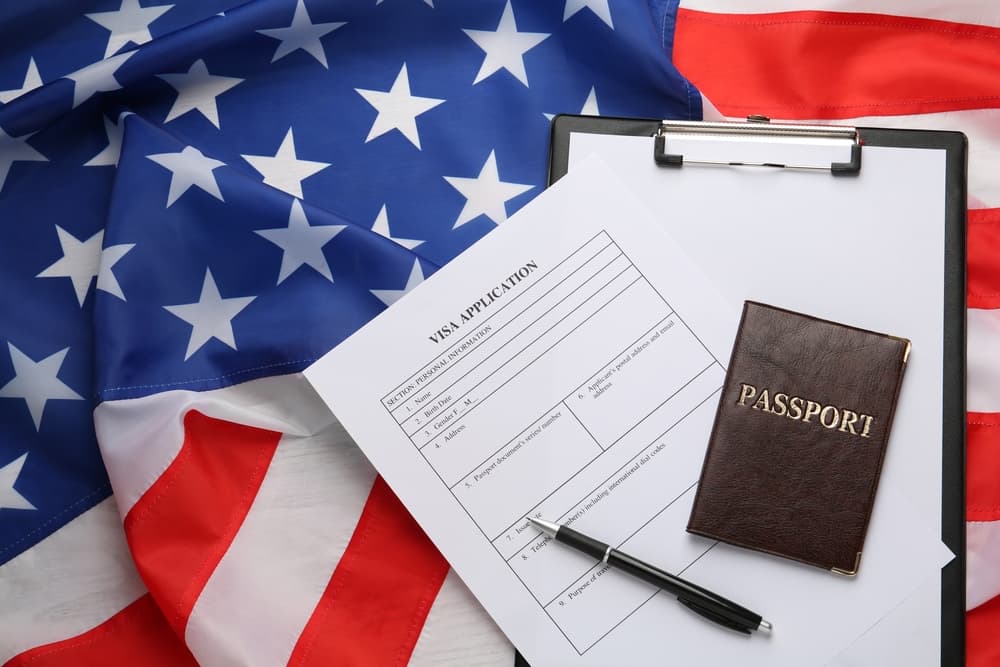
Consequences of New York and New Jersey Traffic Tickets for Legal and Undocumented Immigrants
If you’re an immigrant living in New York or New Jersey, dealing with traffic tickets can be confusing and stressful. Whether you’re here legally or undocumented, getting a ticket can affect your immigration status, driving privileges, and financial well-being.
The consequences of New York and New Jersey traffic tickets for legal and undocumented immigrants can be devastating.
Below is some information about what happens if you get a traffic ticket as a legal or undocumented immigrant. You’ll learn the risks of deportation, losing your driver’s license, and facing financial penalties.
It’s crucial to seek legal assistance, especially from a knowledgeable New York and New Jersey traffic ticket lawyer, to navigate these complex issues.
Schedule a Free Initial Consultation Today!
Consequences for Legal Immigrants
U.S. Immigration and Customs Enforcement deported about 20,000 immigrants for traffic-related offenses. That number accounts for nearly 10 percent of all deportations that year.
In most instances, though, if you’re in the country legally and you commit a minor offense (such as parking illegally or going a few miles over the speed limit), you probably don’t need to worry about your status. The only way you will risk deportation is if you committed an immoral or violent crime.
However, just because you’re probably not at risk of deportation doesn’t mean you can ignore the ticket. Failing to address the citation can lead to the suspension or revocation of your driver’s license.
You may have trouble getting to work, school, or medical appointments without a valid license. Plus, you’ll have to pay fines and other costs, which can increase your financial burden.
Consequences for Undocumented Immigrants
The situation is completely different for an undocumented immigrant. Any sort of involvement with a police officer can lead to deportation. If convicted, that will almost certainly mean the government will deport you. Since you don’t have lawful status in the U.S., you’ll have a tough time remaining in this country.
Seeking Legal Help from a Traffic Defense Attorney
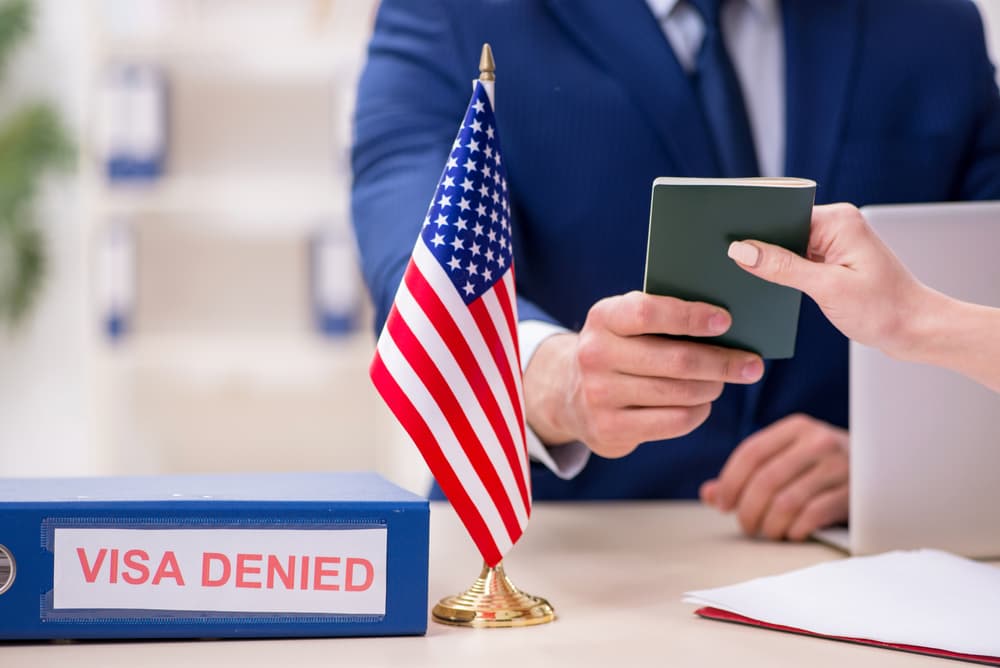
The best way to avoid the consequences of NY and NJ traffic tickets for legal and undocumented immigrants is to hire a defense lawyer immediately. Whether you’re a legal or undocumented immigrant, getting legal help can benefit you in several ways. The following are just a few:
Understanding Your Rights
A lawyer can explain your rights and options when dealing with a traffic ticket. They can explain the legal process and advise you on the best action. You’ll learn much more about your rights in the next section.
Navigating the Legal System
Dealing with the legal system can be confusing, especially if you’re not familiar with the laws and procedures in New York or New Jersey. A lawyer can guide you through the process, ensuring that you understand what’s happening every step of the way.
Protecting Your Immigration Status
For undocumented immigrants, getting a traffic ticket can put your immigration status at risk. An immigration lawyer can navigate any immigration issues that may arise due to the ticket, working to protect your legal status in the U.S.
For example, your attorney can advise on resources for applying for asylum or negotiating an agreement allowing you to stay in the country.
Defending Against the Ticket
In general, an undocumented immigrant has few options against being deported if convicted of even a minor traffic ticket. That’s why hiring a skilled attorney will be so essential. A lawyer can gather evidence, cross-examine witnesses, and present arguments on your behalf to try to get the ticket dismissed or reduced.
Minimizing the Consequences
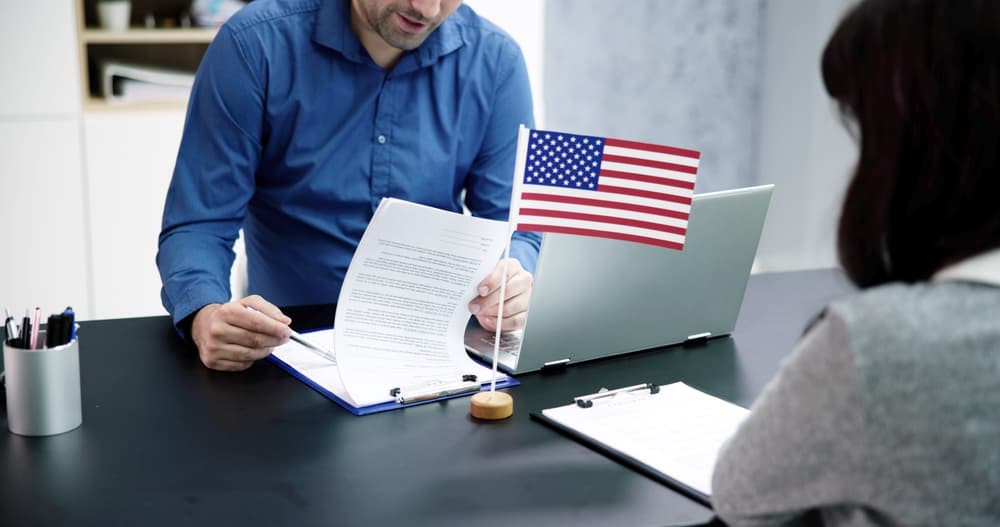
Even if you’re found guilty of the violation, your attorney won’t give up. They’ll work to minimize the ticket’s consequences. They can negotiate with prosecutors to get the charges reduced or negotiate a plea bargain that carries lesser penalties.
Peace of Mind
Maybe, most importantly, hiring a lawyer can give you peace of mind during a stressful and uncertain time. Knowing that you have someone knowledgeable and experienced on your side can make all the difference in dealing with legal hassles and achieving the best possible outcome.
What Are Your Rights as an Immigrant?
Knowing your rights after receiving a traffic ticket is crucial for both legal and undocumented immigrants in New York and New Jersey. Here’s why:
Protection against unfair treatment: Understanding your rights ensures that law enforcement officers and the legal system treat you fairly. By knowing what law enforcement can and cannot do, you can protect yourself from potential abuses of power and ensure that authorities respect your rights.
Preventing self-incrimination: One of the most important rights you have is the right to remain silent. If an officer or another law enforcement official asks you questions, you don’t have to say anything that will make it seem like you’re guilty.
Knowing this right can prevent you from unintentionally saying something that prosecutors and officers can use against you later.
Access to legal help: Knowing your rights also includes knowing that you have the right to speak with an attorney before answering any questions or making any statements to law enforcement.
This allows you to seek legal advice and representation to navigate the legal process and defend yourself against the traffic ticket.
Understanding the legal process: Being aware of your rights helps you understand the legal process and what to expect if you receive a traffic ticket. This knowledge allows you to make informed decisions about how to proceed and ensures no one can take advantage of you.
Please Get in Touch with a New York and New Jersey Criminal Defense Lawyer Immediately

As you can see, there are potentially drastic consequences of New York and New Jersey Criminal Defense attorney for legal and undocumented immigrants. Even if you’re not worried about deportation, ignoring a ticket can impact your life for years to come – and not in a good way.
Understanding these consequences and seeking legal help can protect yourself and your family from the negative impacts. Remember, everyone deserves fair treatment under the law, regardless of immigration status. So don’t hesitate to reach out for help as soon as possible.
Schedule a Free Initial Consultation Today!
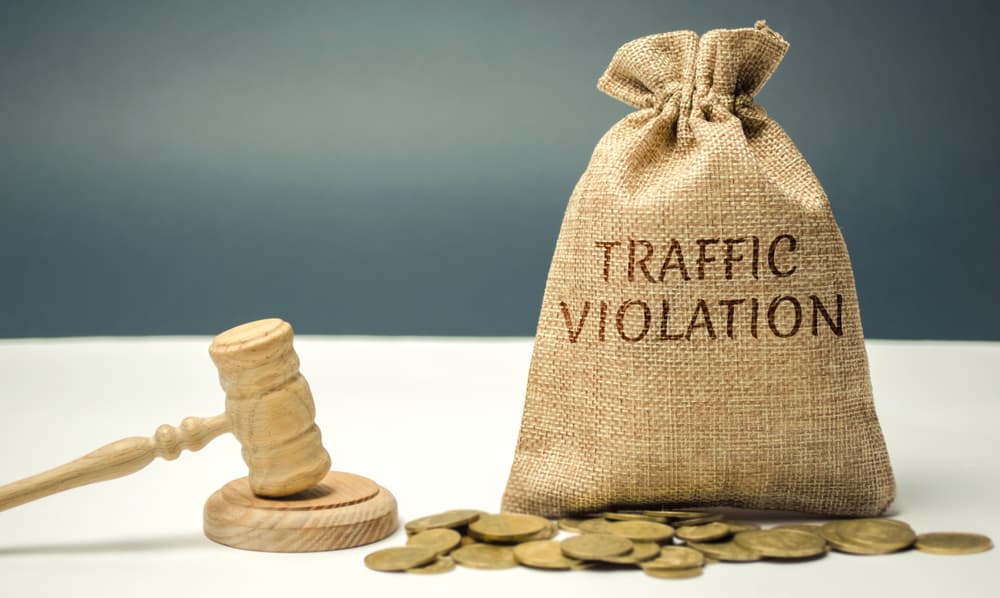
Canadians With Traffic Tickets In New Jersey
Canada and the United States share a close relationship, with many Canadians frequently traveling to the US for business or leisure tourism. However, Canadians with traffic tickets in New Jersey can encounter significant legal issues if they don’t pay them.
The following is a look at some potential consequences for Canadians with traffic tickets in New Jersey, as well as information on how an experienced New Jersey traffic ticket attorney can help if you find yourself in this situation.
Schedule a Free Initial Consultation Today!
The Consequences of Ignoring a US Traffic Ticket for Canadians
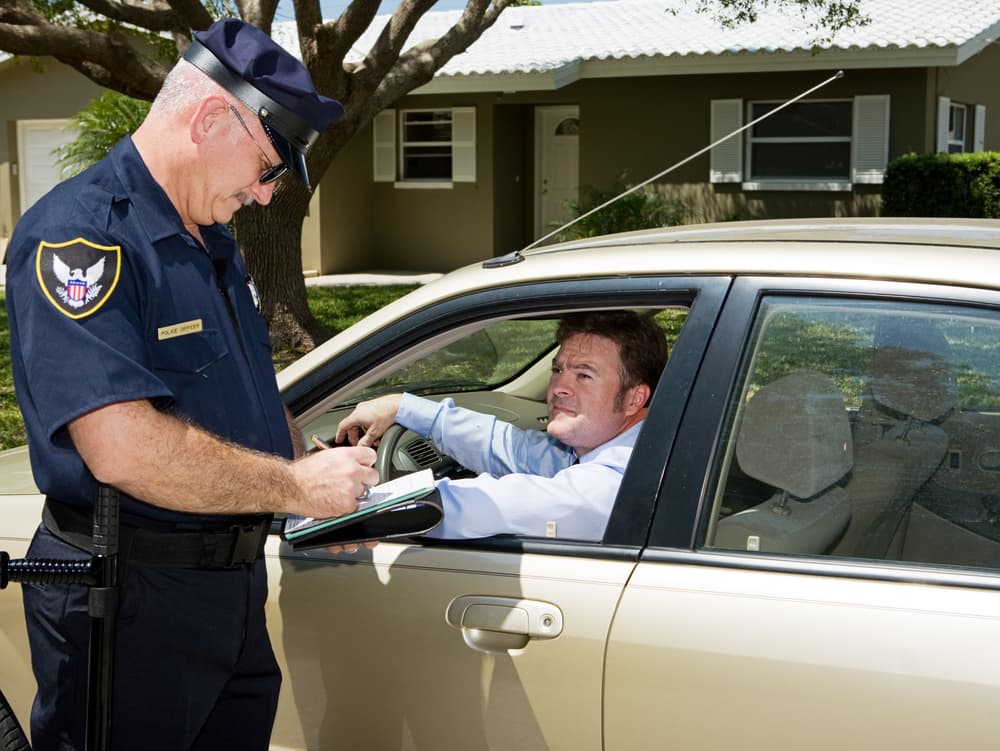
Canadians took more than three million trips to the US by car in a recent six-month period alone. It’s not a stretch to imagine many of these visitors found their way to New Jersey, and quite a few received traffic tickets.
Some states, such as Michigan and New York, have reciprocity agreements with the province of Ontario. Other states have similar agreements with other provinces. A reciprocity agreement means someone with a traffic violation in a US state can face punishment in their home province.
New Jersey doesn’t have such agreements. However, that doesn’t mean you can tear up the ticket and forget it once you return to Canada.
Ignoring a US traffic ticket can have severe consequences for Canadians who have traffic tickets in New Jersey. It may lead to escalating fines, penalties, and the suspension of driving privileges. Failure to address the ticket can also result in police issuing a warrant for your arrest.
Difficulty Returning to the US by Car
If you frequently travel to the US by car, ignoring a traffic ticket can cause difficulty returning to the country. Border officials may flag you if you have an outstanding ticket, leading to delays or even denial of entry.
These officials have access to databases that contain information on outstanding warrants and unpaid fines. Attempting to cross the border with an unresolved traffic ticket can increase the likelihood of detection and enforcement action by US authorities.
By crossing the border with an outstanding ticket, Canadians risk facing immediate detention, vehicle impoundment, and other legal hassles. Therefore, Canadians must promptly address US traffic tickets to avoid these potential consequences and ensure stress-free travel experiences. Do so with guidance from an NJ traffic defense attorney.
Other Potential Problems
Even if Canadians with traffic tickets in New Jersey manage to re-enter the US without immediate detection, unresolved traffic tickets can have long-term consequences. Police can report you to Canadian authorities, potentially impacting your driving record and insurance premiums. Repeated attempts to cross the border with unpaid tickets can hurt your immigration record, leading to increased scrutiny and potential denial of entry in the future.
How a Defense Attorney Can Help
Legal representation from an experienced attorney is invaluable for Canadians facing traffic tickets in New Jersey. A defense lawyer can provide guidance on the legal process, advise on available options, and advocate on your behalf in court. They can negotiate with prosecutors to seek reduced charges or penalties and work to minimize the impact on your driving record and insurance rates.
A skilled attorney can also handle the intricacies of New Jersey’s legal system, including its traffic laws and procedures, which may be unfamiliar to Canadians. They can also advise on potential defenses for the traffic offense and explore alternative resolutions, such as diversion programs or plea bargains, to mitigate the impact on their clients.
Overall, legal representation by an attorney can significantly improve the chances of a favorable outcome for Canadians facing traffic tickets in New Jersey, helping them navigate the process efficiently and minimize the potential consequences of the violation.
Potential Defenses for a Traffic Ticket
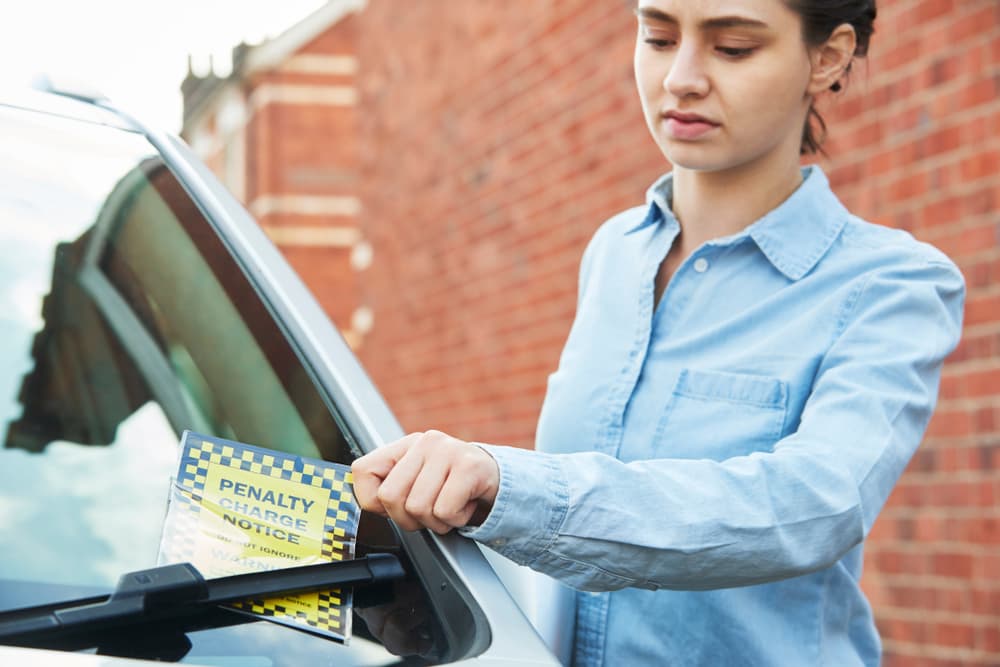
When faced with a traffic ticket in New Jersey, Canadians have various potential defenses at their disposal. These are just a few of the strategies your lawyer may consider.
Challenging the Citation
One of the most common defenses is challenging the accuracy and validity of the citation itself. This may involve scrutinizing the ticket details, including the officer’s observations and the circumstances surrounding the alleged violation. Inaccuracies or inconsistencies in the citation can undermine its credibility and raise doubts about the offense’s legitimacy.
Disputing Legality
Your attorney can argue that law enforcement lacked probable cause or violated your constitutional rights during the stop. For instance, if the officer conducted an unlawful search or seizure, the court may deem the evidence obtained during the stop inadmissible, weakening the prosecution’s case.
Challenging the Speed Detection Device
If you received a speeding ticket, your lawyer can challenge the calibration and accuracy of the officer’s device, such as a radar or lidar gun. By questioning the reliability of these devices and presenting evidence of calibration errors or malfunctions, your attorney may cast doubt on the accuracy of the speed measurement and the ticket’s validity.
Mitigating Circumstances
Your lawyer might work to demonstrate to the court that there were extenuating circumstances at the time of the violation that justify leniency. Suppose you or someone in your vehicle was experiencing a medical emergency. You may have felt forced to speed due to a dangerous situation on the road. These are examples of mitigating circumstances that serve as a compelling argument for reducing or dismissing the charges.
Other Potential Strategies
Finally, your attorney may recommend attending a defensive driving course or completing community service as alternatives to traditional penalties, especially if you’re a first-time offender. These proactive measures demonstrate a willingness to address the underlying issues and take responsibility for your actions, which may sway the court in favor of leniency.
By exploring these defense strategies with the help of an experienced lawyer, you can increase your chances of successfully challenging a traffic ticket and avoiding or minimizing the associated penalties.
Learn More About How a New Jersey Traffic Defense Lawyer Can Help

For Canadians facing traffic tickets in New Jersey, addressing these issues promptly and seeking legal representation is essential to protecting their rights and minimizing the consequences. Hiring a knowledgeable New Jersey criminal defense attorney can deal with the legal process effectively and come back to the US with no concerns.
Schedule a Free Initial Consultation Today!
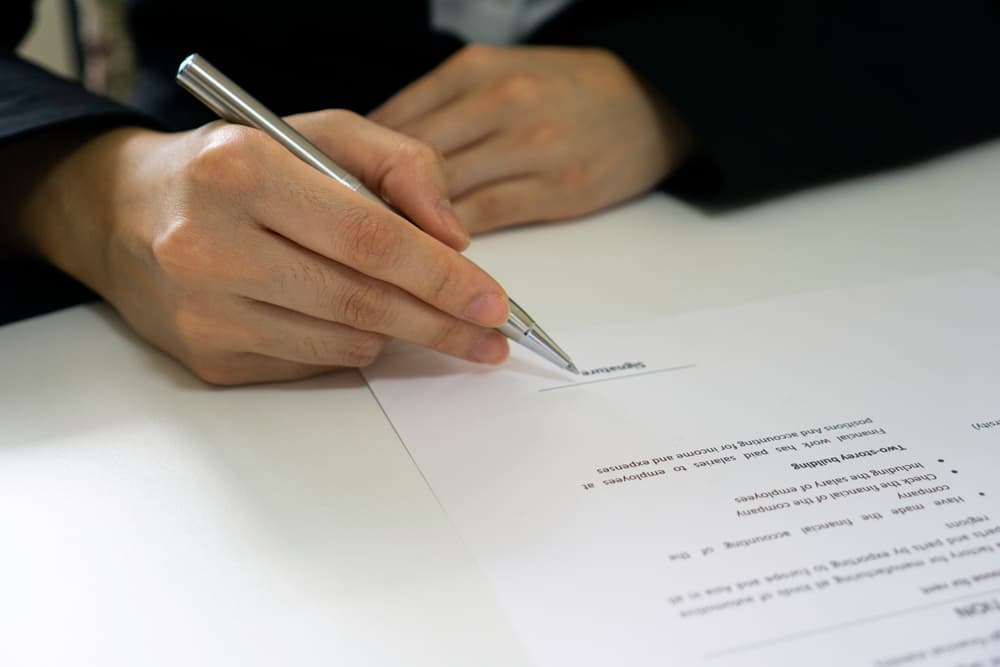
How Do I Legally Change My Name in NJ?
If you want to legally change your name in New Jersey, you’ll need to pay careful attention to detail and adhere to specific procedures. Whether you’re changing your name after just getting married or divorced or just want a change, understanding the complexities of the process is crucial.
In this guide, we’ll explore the steps involved in legally changing your name in New Jersey, the role of a Clifton name change attorney in helping make the process easier, and some common challenges applicants may face.
Schedule a Free Initial Consultation Today!
A Brief Look at How the Process Works
The process of changing your name in New Jersey involves several steps you must follow carefully to ensure a successful outcome. As you might already know, there’s going to be a lot of paperwork involved.
You’ll first need to get a petition and either file it online or bring it to the Superior Court in your county. The petition must include information about why you want to change your name in New Jersey, your present name, and the new name you want.
You must also submit any required documentation. That documentation can be your marriage license, divorce decree, or something else, depending on the reason for the name change.
You must also pay a filing fee of $250, which you can pay by credit card if you file electronically. If you bring the papers or mail them to the courthouse, you must pay by check or money order.
However, there’s a chance you might qualify for a fee waiver. But be ready to deal with more paperwork if you want to apply for one.
After Filing the Petition
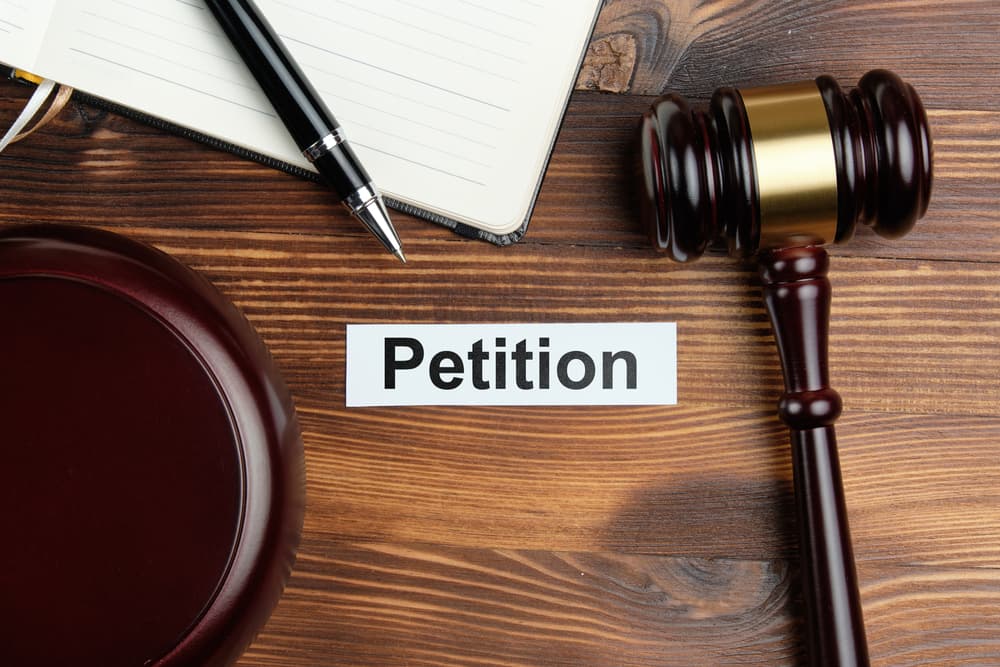
After you file, the court may ask you to appear at a hearing. The judge will look over the petition and may also ask questions to make sure your request is valid. Some people try to change their names for unlawful reasons.
During the hearing, the judge may ask about your reasons for changing your name and if you have any outstanding legal issues or obligations that can affect the name change.
If the court approves the petition, they’ll send a court order making your name change official. Please keep this order in a safe place and make several copies. You’ll need them to get a new passport, Social Security card, and driver’s license.
It’s important to note that the name change process may vary depending on the circumstances. For example, the court may require additional steps and court appearances if the name change involves a minor or another party contests the change.
Remember that if you want to change your name in New Jersey, you must pay close attention to all the details. If you don’t follow all instructions to the letter, that can delay the process. An experienced lawyer can help make things much smoother and easier.
Challenges You May Face
As you can see, there’s no guarantee you’ll be able to change your name in New Jersey. You can encounter various challenges that you should be prepared to navigate.
These challenges can arise from legal requirements, administrative procedures, objections from interested parties, and other factors. Understanding these potential hurdles is crucial to your chances for success. The following is a look at just a few.
Red Tape
One challenge individuals may encounter is bureaucratic delays and administrative hurdles. Changing your name involves:
- Submitting paperwork to the court.
- Obtaining necessary documentation.
- Updating various official records and identification documents.
Delays can occur if paperwork needs to be completed or updated or if there are backlogs in processing applications. In addition, coordinating updates with government agencies, financial institutions, and other entities can be time-consuming and complicated.

Objections
Another challenge is objections from family members or other interested parties. Sometimes, family members may oppose a name change for personal or familial reasons. These objections can lead to legal disputes or require additional court hearings to resolve. While objections don’t necessarily prevent a name change, they can prolong the process and add complexity.
Procedural Complications
Legal requirements and procedural complexities can also pose challenges for individuals seeking a name change in New Jersey.
The state has specific laws and regulations governing name changes, including residency requirements, publication requirements, and court fees. Complying with these legal requirements can be daunting, particularly for someone unfamiliar with the legal system.
Minors
Additional challenges may arise for minors seeking a name change. Minors typically require consent from their parents or legal guardians. Also, the court will consider the child’s best interests when evaluating the petition. If one parent opposes the name change, it can complicate the process and require court intervention.
Criminal Records
People with criminal records or outstanding legal issues may face significant obstacles when attempting to change their name. The court may scrutinize name change petitions more closely in these cases, and objections from law enforcement agencies or other parties may arise. Addressing these concerns and demonstrating good faith can be crucial for overcoming such challenges.
Finances
Financial considerations also play a role in the name change process. Court fees can add up, particularly if you’re on a tight budget. Securing financial resources to cover these expenses may be difficult for those seeking a name change in New Jersey.
The Role of a Name Change Attorney
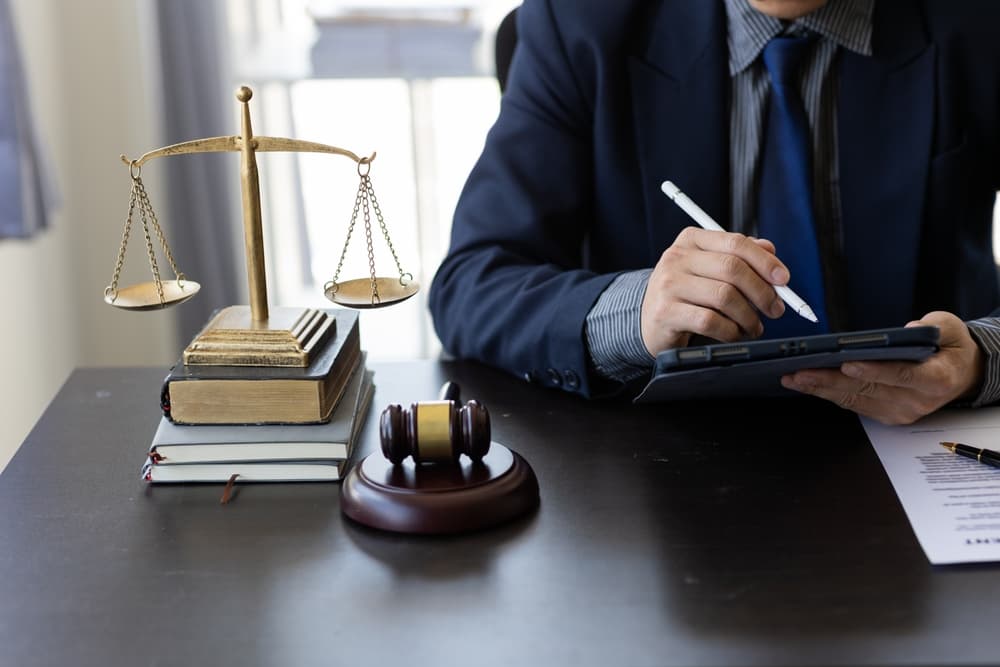
Not only can a skilled attorney simplify and expedite the process of changing your name in New Jersey, but they can also work to overcome any challenges you may face.
Paperwork
A lawyer’s experience can ensure that all of your paperwork is accurate and that you submit it before the deadline. Attorneys understand the legal requirements and nuances of the process. They can spare you the confusion and potential errors from navigating it alone.
Support and Advice
An attorney can also guide and support you throughout the process. They can advise you on the best approach to your specific situation, whether it’s a straightforward name change or one that involves unique circumstances. This includes explaining your rights, obligations, and the potential consequences of changing your name.
Representing You in Court
Finally, an attorney can represent you in court appearances if necessary. While not all name change petitions require a court hearing, having legal representation can be invaluable when others raise objections or the judge requires additional information. An attorney can advocate on your behalf, presenting a compelling case for why the name change should be granted.
A Skilled New Jersey Name Change Lawyer is Waiting to Help

Please don’t hesitate to contact a New Jersey criminal defense attorney if you want to change your name in New Jersey. Legal help can make the difference between success and failure.
Schedule a Free Initial Consultation Today!
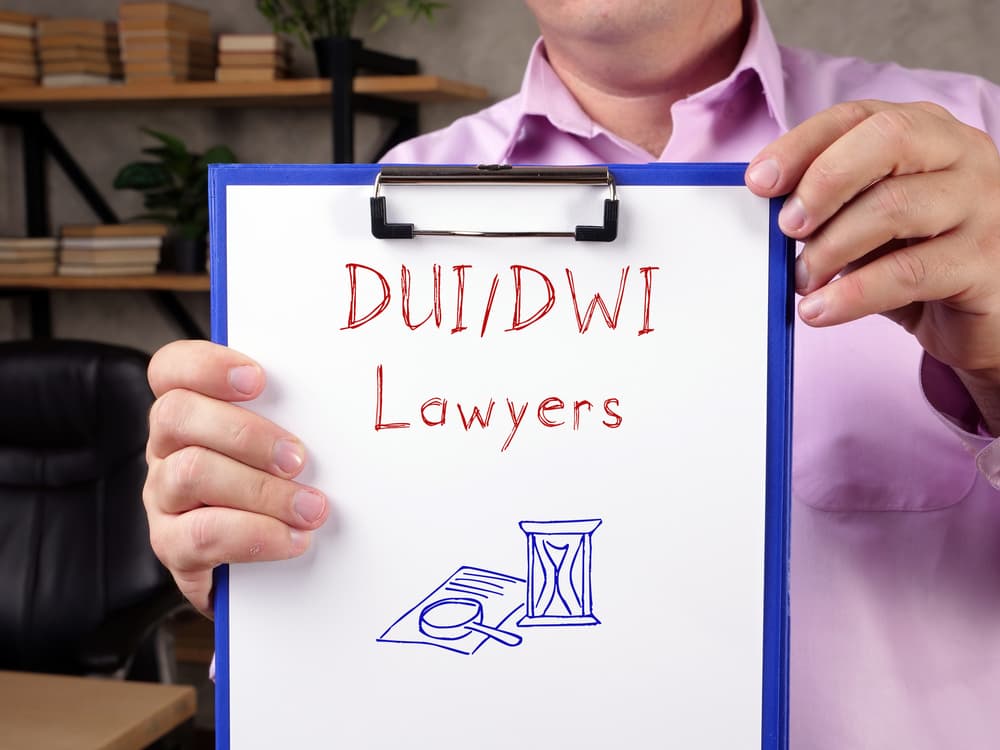
How to Get a DWI Dismissed in New York
Driving While Intoxicated (DWI) charges can have serious consequences, including hefty fines, license suspension, and even jail time. However, with the right lawyer, you can get your DWI dismissed in New York. This blog will explain the laws and what a DWI defense attorney can do for you, including mounting a solid defense.
Schedule a Free Initial Consultation Today!
BAC Levels and DWI
In New York, DWI laws make it illegal for a person to operate a motor vehicle with a 0.08 percent or higher Blood Alcohol Content (BAC) level. Even if your BAC is below 0.08 percent, you can still face charges if law enforcement determines that alcohol or drugs impaired your ability to drive.
Why You Need a DWI Defense Attorney
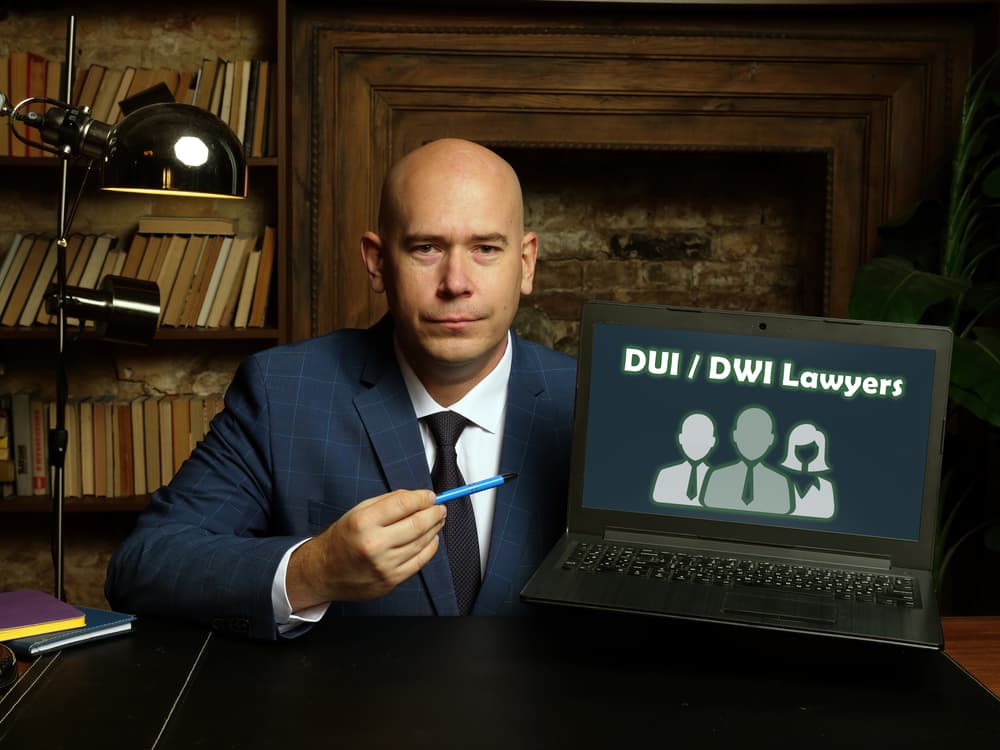
The first step in fighting a DWI charge is to hire an attorney with extensive experience in DWI cases. A DWI defense lawyer can help navigate the legal process, assess the strength of the prosecution’s case, and develop a defense strategy tailored to your specific circumstances.
Attempting to handle a DWI charge alone can be overwhelming and may result in less favorable outcomes.
Potential Penalties
Always hire a lawyer to try to dismiss your DWI in New York because of the severe penalties:
- Fines ranging from hundreds to thousands of dollars
- License suspension or revocation
- Mandatory participation in alcohol education programs
- Imprisonment, particularly for repeat offenders or those involved in accidents resulting in injury or death.
How a DWI Defense Lawyer Can Help Get Your DWI Dismissed
A skilled attorney can work to find legal technicalities and procedural errors during the arrest or investigation process. If someone in law enforcement made a mistake, that can significantly affect the outcome of your case.
Procedural Errors
These errors may range from minor deviations from proper protocol to more severe violations of constitutional rights. For instance, if the arresting officer failed to administer a Breathalyzer test properly or conduct field sobriety tests according to standardized procedures, it can cast doubt on the validity of the evidence gathered.
Violating Your Constitutional Rights
Another common issue that can lead to dismissal is the lack of probable cause for the traffic stop. In the United States, law enforcement officers must reasonably suspect that a crime or traffic violation has occurred before pulling over a vehicle.
This principle stems from the Fourth Amendment to the U.S. Constitution, which protects citizens from unreasonable searches and seizures.
If your attorney can demonstrate that the officer lacked probable cause for the stop, the court may throw out any evidence obtained from that stop, such as BAC test results.
Faulty Testing
Inaccuracies in chemical testing or sobriety field tests can also provide grounds for dismissal. Breathalyzer machines, while widely used, are not infallible. They can produce false readings for a variety of reasons. Factors such as improper calibration, environmental conditions, or medical conditions of the individual being tested can all impact the accuracy of the results.
Similarly, field sobriety tests, which officers often use to assess a driver’s level of impairment, are subjective and unreliable indicators of intoxication. This is especially true for individuals with physical or medical conditions that can affect their performance.
Other Rights Violations
Additionally, violations of Miranda rights or denial of legal representation can seriously affect the admissibility of evidence in court. Miranda rights, guaranteed by the Fifth Amendment, require law enforcement officers to inform people they’re arresting of their right to remain silent and their right to an attorney before conducting custodial interrogations.
Failure to provide these warnings or denial of access to legal representation can render any statements the defendant made inadmissible during the arrest. This can significantly weaken the prosecution’s case and may ultimately lead to the dismissal of the charges.
To mount an effective defense against a DWI charge, exploring all possible avenues for dismissal is essential. Your lawyer may, for instance, challenge the validity of the arresting officer’s actions, scrutinize the reliability of chemical testing results, and present evidence that undermines the prosecution’s case.
An experienced attorney can identify weaknesses in the prosecution’s arguments and leverage them to your advantage.
Negotiating a Plea Bargain
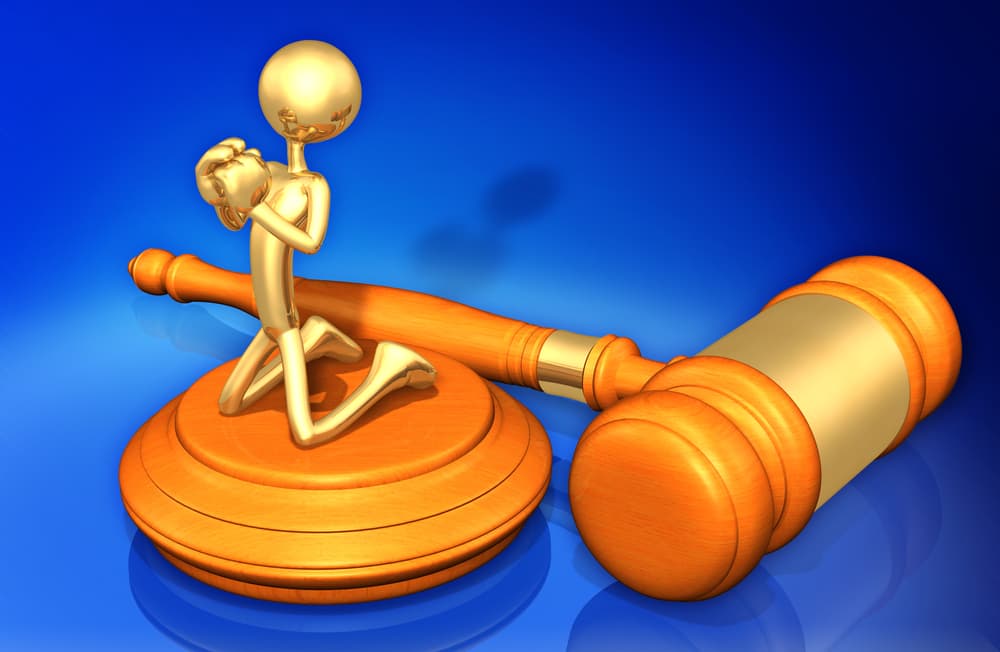
If dismissal efforts do not succeed, your attorney may negotiate with the prosecution for a plea bargain. Your lawyer may recommend pleading guilty to a lesser offense, such as a reduced charge of driving while impaired (DWAI), in exchange for more lenient penalties. While a plea bargain may not result in a complete DWI dismissal in New York, it can mitigate some of the consequences associated with conviction.
The following is information on how your attorney may attempt to negotiate a reduced charge.
Mitigating Factors
Your attorney may highlight mitigating factors, such as the fact you don’t have a criminal record. They can also highlight your positive contributions to the community or cooperation with law enforcement.
By presenting you in a favorable light, the attorney aims to persuade the prosecutor to consider a more lenient plea deal.
Challenging the Case Against You
Another strategy is to challenge the strength of the prosecution’s case. Your attorney will analyze the evidence, including BAC test results and witness statements, for any weaknesses or inconsistencies.
The attorney may use doubts about the reliability of the evidence or the legality of the arrest as leverage to negotiate a plea bargain that reduces charges or penalties.
Explaining the Benefits of a Plea Bargain
Defense lawyers often emphasize the potential benefits of a plea bargain for both parties. By avoiding a lengthy and costly trial, prosecutors can conserve resources and allocate them to other cases. Meanwhile, defendants may benefit from reduced charges or penalties, sparing them from harsh consequences such as license suspension or incarceration.
Alternatives to Jail Time
Another effective strategy is to propose alternative resolutions that address the underlying issues contributing to the DWI offense. This may involve participating in alcohol education programs, attending counseling or rehabilitation, or performing community service.
If you demonstrate a commitment to addressing the root causes of the offense, you can present yourself as a proactive and responsible person deserving of leniency.
Contact a New York DWI Defense Attorney as Soon as You Can

While getting a DWI dismissed in New York is not impossible, it’s very challenging. You need the help of a skilled lawyer. The sooner you get legal help, the better the chances your criminal defense attorney can achieve the best possible outcome in your case.
Schedule a Free Initial Consultation Today!
